
OPEN POST
So, you’re dreaming of saying “I do” with a backdrop of ancient history, breathtaking landscapes, and unforgettable cuisine? A destination wedding in Italy is more than a trend; it’s a once-in-a-lifetime experience that blends romance, adventure, and la dolce vita into the start of your marriage.
As videographers at The Ember Edit, we’ve had the privilege of capturing love stories across Italy’s most stunning regions. We’ve also explored on our own, so we’ve gathered key insights to help you plan. From the dramatic peaks of the Dolomites to the rolling hills of Tuscany and the glamorous shores of Lake Como, here’s our guide to finding your perfect Italian wedding locale.
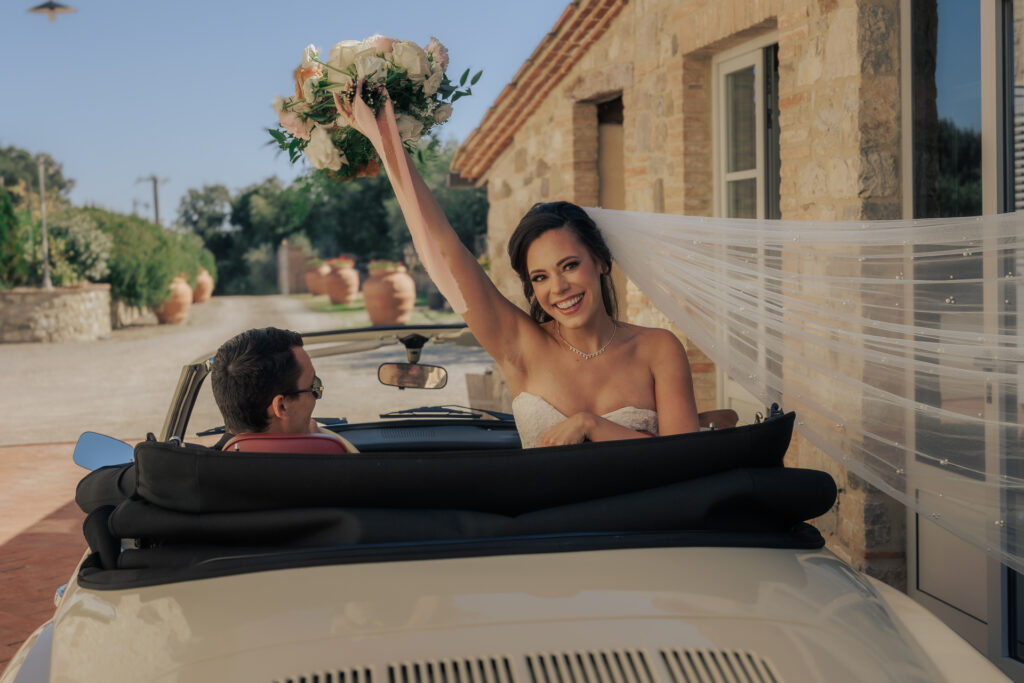
For the Adventurous Souls: The Dolomites
If your idea of romance involves epic mountain vistas, crisp alpine air, and a sense of raw, natural beauty, then the Dolomites are your paradise. This UNESCO World Heritage site is a playground for couples who love to explore, and it provides a truly epic backdrop.
Why Choose the Dolomites for your Destination Wedding in Italy?
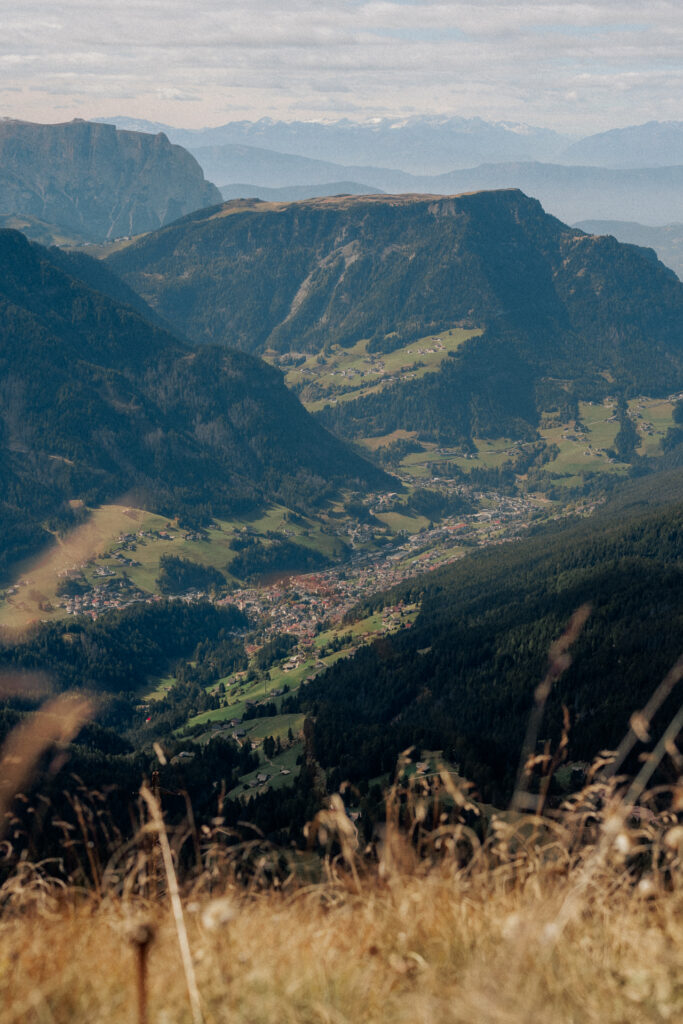
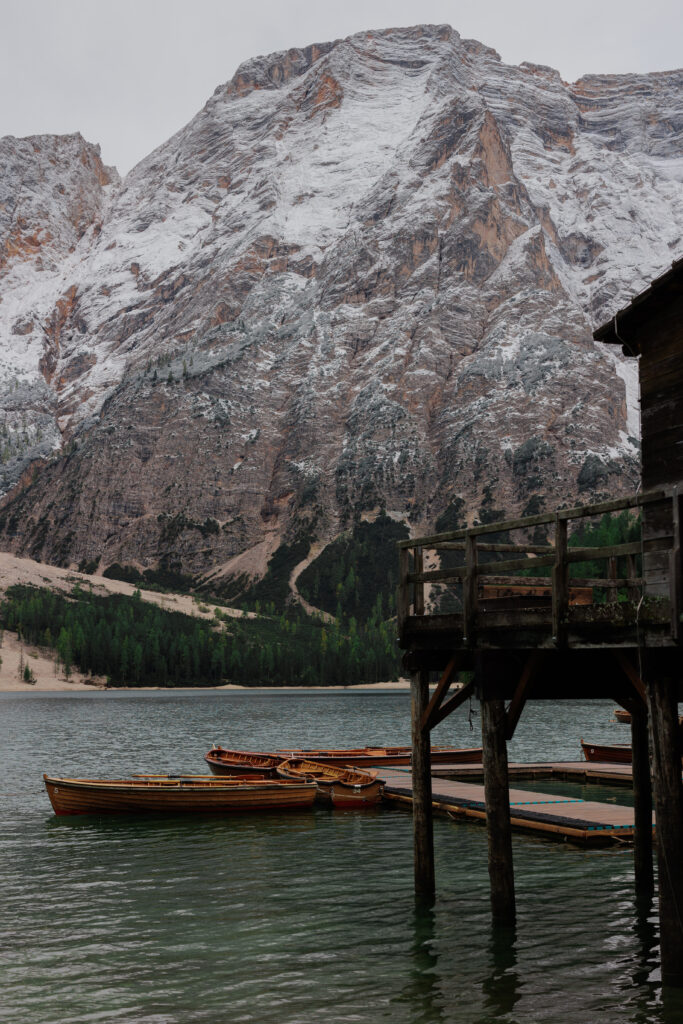
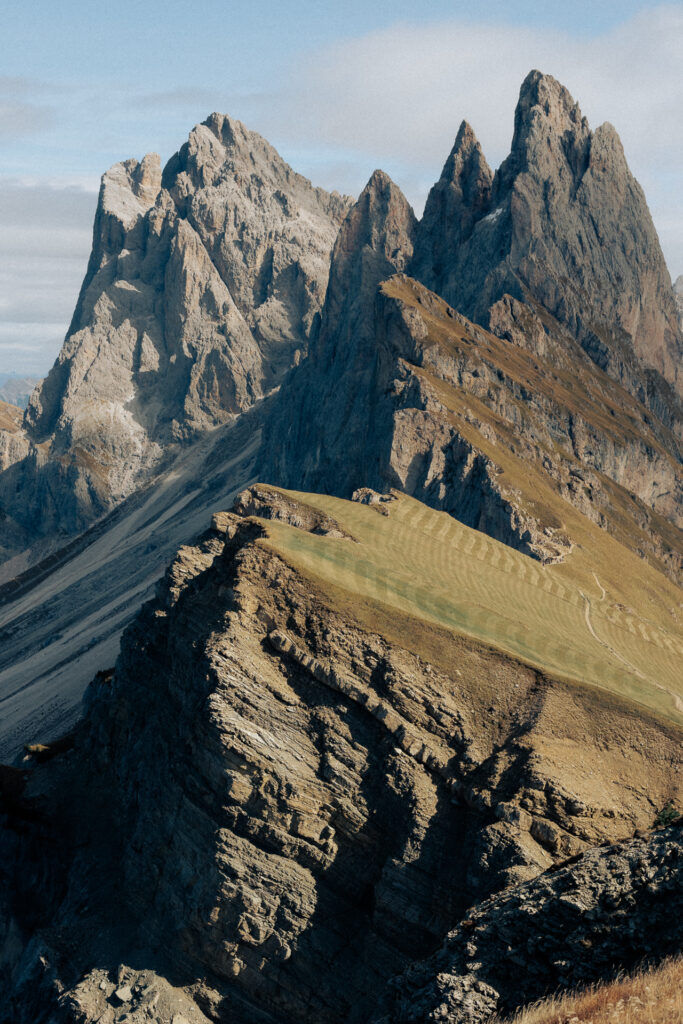
Imagine your wedding photos and film set against jagged peaks and emerald lakes. The light here is truly magical, especially during the golden hour, because the alpenglow creates a warm, ethereal glow—something we as videographers absolutely love to capture. So, if you’re after an unforgettable setting for an intimate, adventurous celebration, this is it.
Must-Visit Spots & Stays:
- Lake Braies: This iconic, crystal-clear lake is a must-see. We recommend arriving early to beat the crowds and take a peaceful rowboat out on the water. Plus, you can often get the dock all to yourself early in the morning for a private bridal shoot before it opens to the public!
- Seceda & Alpe di Siusi: Accessible by gondola from the charming town of Ortisei, these high-altitude meadows offer some of the most iconic views in all of Italy. We stayed at Villa Stella in Ortisei—a cozy, welcoming hotel with the huge bonus of a parking garage, which is a rarity in town! And it was within walking distance of the Alpe di Siusi gondola. Pro Tip: If you want to visit different peaks, consider a 3-day gondola pass to save money compared to individual tickets!
- Fuel Your Adventure: After a day of hiking, head to Turonda in Ortisei. Trust us on this—their pizza is SO GOOD!! It’s the perfect reward after a long day of exploration.
A Dolomites wedding is for the couple who wants their love story framed by nature’s most dramatic masterpiece. For current info on gondola hours and hiking trails, check the official Val Gardena tourism website.
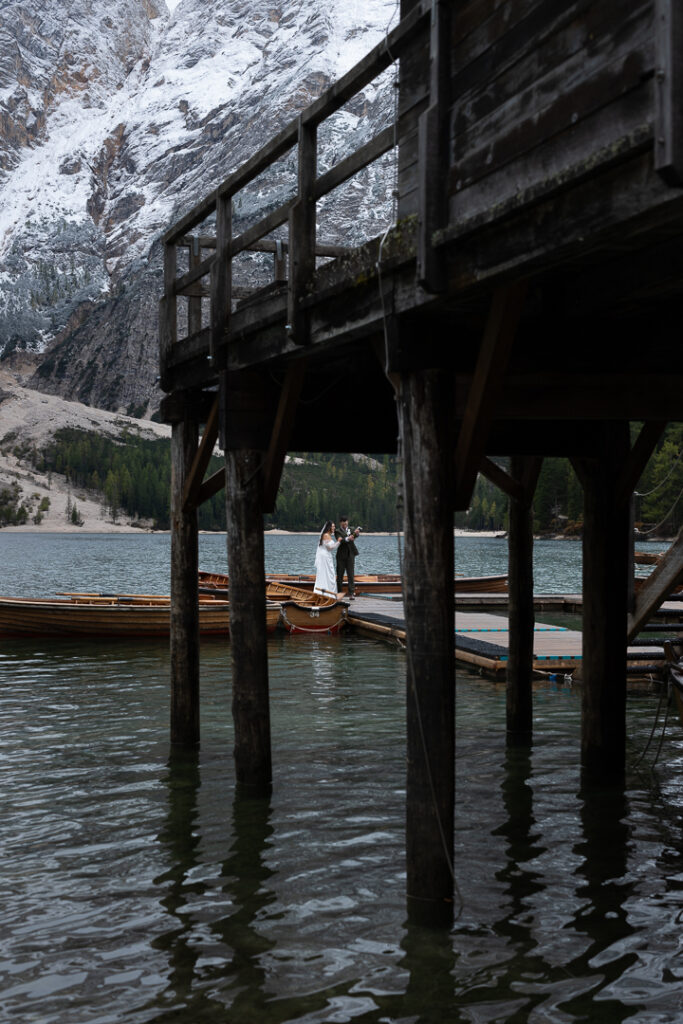
A Dolomites wedding is for the couple who wants their love story framed by nature’s most dramatic masterpiece. This site has current info on gondola hours, hiking trails, weather, and other local amenities for your guests: https://www.valgardena.it/en/
For the Classic Romantics: Tuscany
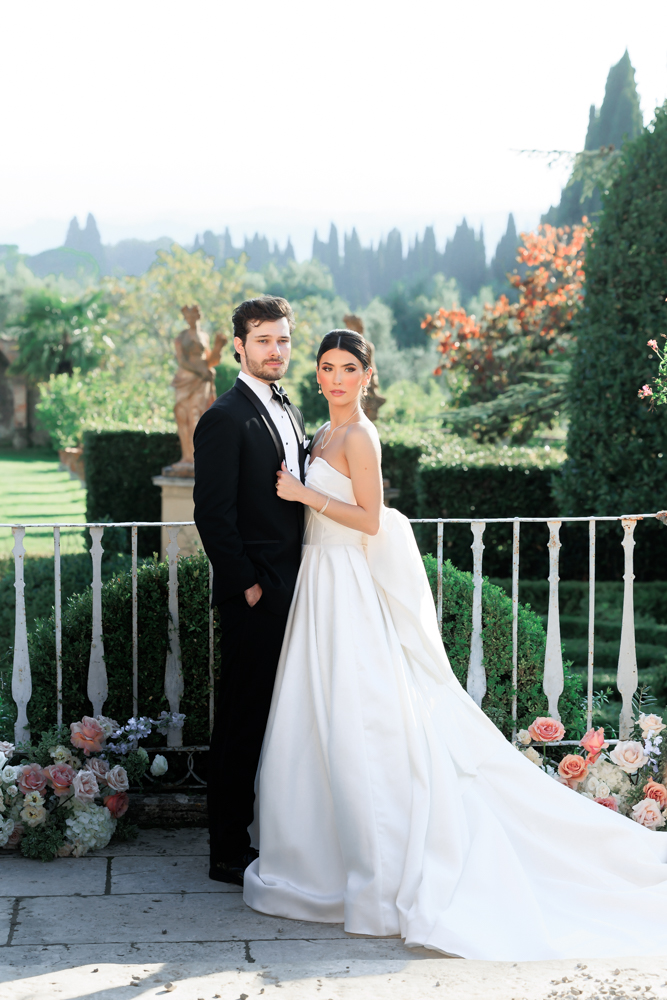
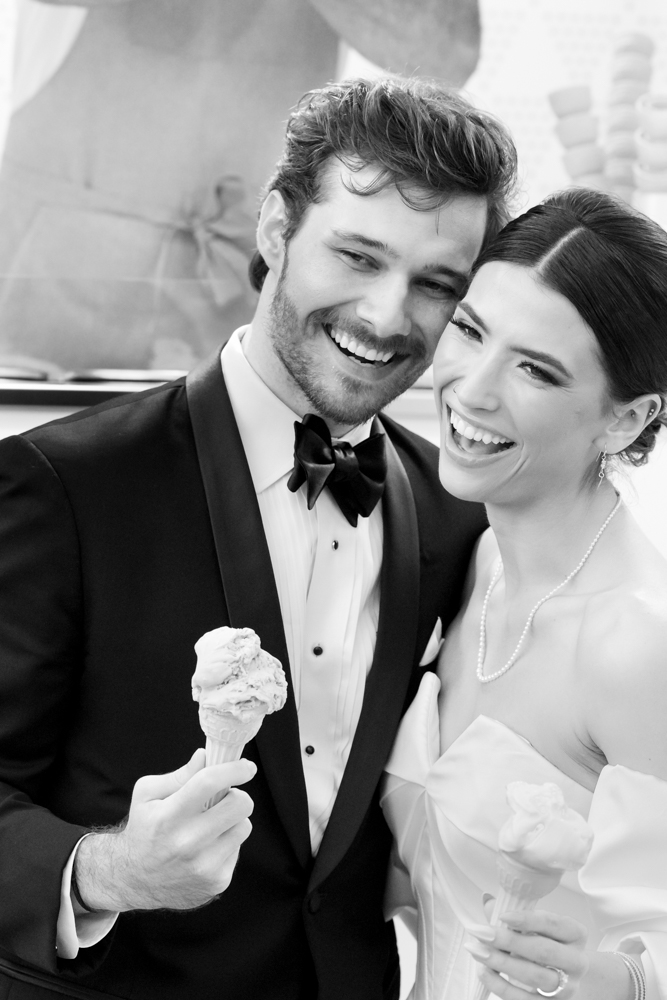
When you picture a classic destination wedding in Italy, you’re probably thinking of Tuscany. This region is the heart of Renaissance art, world-renowned wine, and those dreamy, rolling hills dotted with cypress trees.
The Allure of a Tuscan Destination Wedding in Italy
Tuscany offers that picture-perfect, romantic aesthetic without the strenuous hiking of the Dolomites. Instead, it’s about leisurely wine tours, exploring medieval hilltop towns, and soaking in a rich, cultural history.
We had the pleasure of filming at Villa Catignano, and it was absolutely dreamy. This is the quintessential Tuscan villa experience for couples seeking timeless elegance.
Cultural Gems to Explore Before and After Your Destination Wedding in Italy
While the Tuscan countryside is dreamy, the region’s true magic lies in the incredible diversity of its cities and villages. From world-renowned art capitals to hidden hilltop gems, here are the essential spots to explore with your wedding party.
The Crown Jewels: Florence & Siena
- Florence (Firenze): The Cradle of the Renaissance
- Why Visit: This is the artistic heart of Italy. You can marvel at the architectural wonder of the Florence Cathedral (Duomo), cross the historic Ponte Vecchio with its iconic jewelry shops, and see Michelangelo’s David at the Accademia Gallery. The city is an open-air museum, so every corner offers a new masterpiece.
- Perfect For: Art lovers, history buffs, and any couple who wants to be immersed in breathtaking Renaissance beauty.
- Siena: The Gothic Masterpiece
- Why Visit: Siena feels like a step back in time with its stunning, shell-shaped Piazza del Campo and the intricate, black-and-white striped Siena Cathedral (Duomo). The city’s medieval character is perfectly preserved, and the view from the top of the Torre del Mangia is unforgettable.
- Perfect For: Couples and guests who adore Gothic architecture and want to experience the passion of a city with deep, historic rivalries.
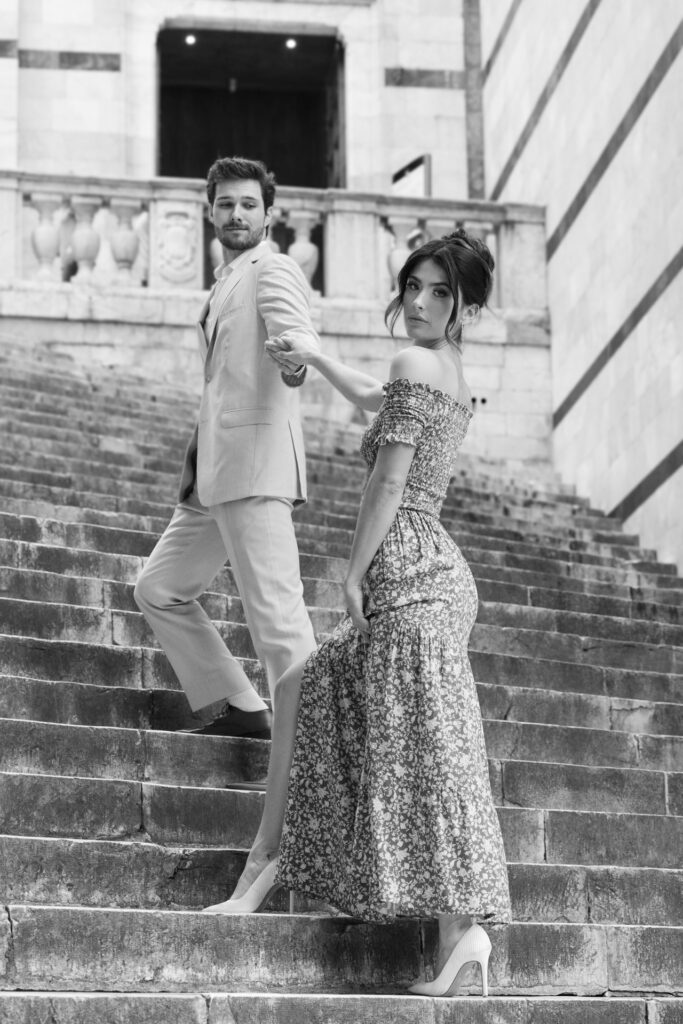
The Enchanting Hill Towns: San Gimignano, Pienza & Montepulciano
- San Gimignano: The Medieval Manhattan
- Why Visit: Famous for its surviving medieval “skyscrapers,” San Gimignano offers a skyline like no other. It’s a perfectly preserved UNESCO World Heritage site that feels like stepping into a fairy tale. Plus, it’s home to award-winning gelato at Gelateria Dondoli!
- Perfect For: History lovers, photographers, and anyone wanting those iconic, towering Tuscan views.
- Pienza: The Ideal Renaissance Town
- Why Visit: This town is a masterpiece of Renaissance urban planning, commissioned by Pope Pius II. It’s perched on a hill overlooking the iconic Val d’Orcia, with perfectly manicured streets and delicious pecorino cheese shops on every corner.
- Perfect For: Foodies and photographers. The rolling, cypress-lined hills surrounding Pienza are the postcard-perfect image of Tuscany that every couple dreams of capturing.
- Montepulciano: The Wine Lover’s Peak
- Why Visit: This high-altitude town is famous for its robust Vino Nobile wine. You can tour ancient wine cellars carved deep into the city’s foundations, and the sweeping vistas from its steep streets are absolutely breathtaking.
- Perfect For: Wine-loving couples. But be prepared for a climb—the charming, steep streets lead to incredible rewards at the top.
The Hidden Gems: Lucca & The Maremma
- Lucca: The City of a Hundred Churches
- Why Visit: Encircled by massive, tree-lined Renaissance walls, Lucca is a unique and enchanting city. You can rent bikes and ride along the top of the walls for a truly memorable experience. Meanwhile, its cobblestone streets are home to numerous beautiful churches and a lively atmosphere.
- Perfect For: Families and guests looking for a flat, easy-to-navigate city with a relaxed and romantic atmosphere.
- The Maremma: Tuscany’s Wild Side
- Why Visit: For a break from the hills, the Maremma region offers a wild, rustic coastline, natural thermal hot springs (like Saturnia’s famous cascades), and a more untamed landscape. It’s a completely different, but equally captivating, side of Tuscany.
- Perfect For: Adventurous couples who want to mix a countryside wedding with a day at the hot springs or a visit to the sea.
For the Luxury Lovers: Lake Como
Synonymous with glamour and old-world charm, Lake Como has long been a magnet for those seeking a sophisticated and luxurious escape.
Why Lake Como is a Dream Venue
If your vision involves boating on serene blue waters, staying in a stunning villa right on the shoreline, and rubbing shoulders with a touch of celebrity glamour, Lake Como is your spot. The atmosphere is effortlessly elegant and incredibly romantic.
Experiencing the Lake Como Lifestyle
The Towns: Exploring the charming towns of Bellagio, Varenna, and Menaggio is a delight, because each has its own unique character, colorful buildings, and exquisite dining.
The Villas: The historic villas, like Villa Balbianello and Villa Carlotta, are wedding venues unlike any other, with immaculate gardens and breathtaking water views.
No matter which region calls to you, a destination Italy wedding is an incredible adventure. The key is to choose a location that reflects your unique love story and personalities.
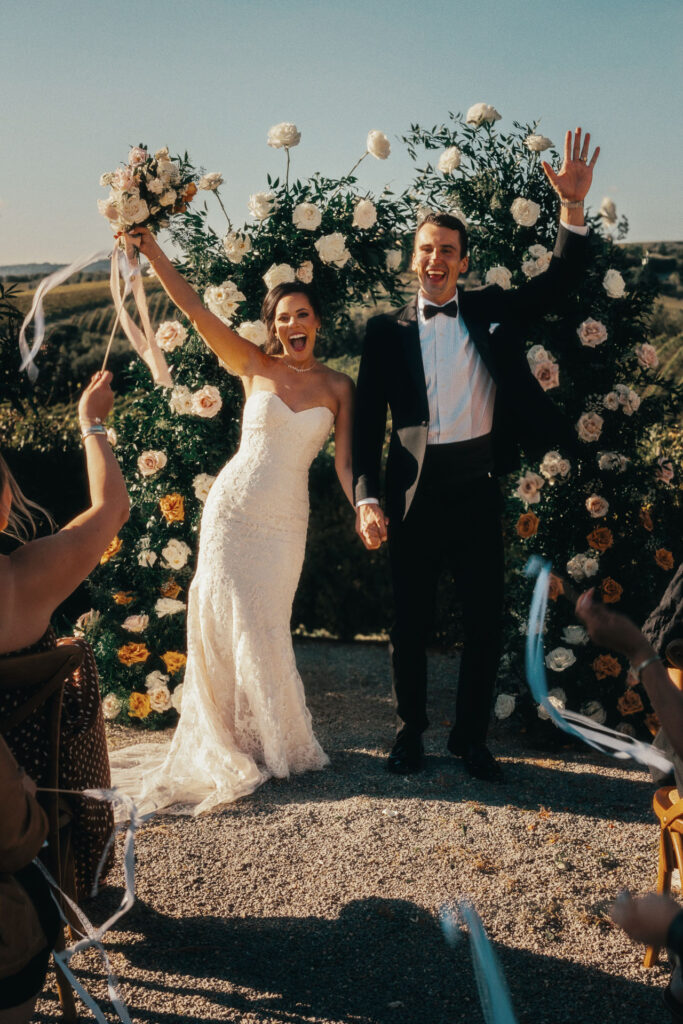
Four Common Italy Wedding Mistakes to Avoid
While planning your Italian fairytale, it’s easy to get swept away by the vision. But a little practical planning is what ensures your day is as seamless as it is beautiful. Based on our experience, here are the top mistakes to watch out for:
1. Underestimating the Legalities or Travel Logistics.
- The Mistake: Assuming you can just show up and get married. Italy has specific residency requirements and paperwork. Also, not considering travel time between airports, hotels, and venues can create major stress.
- The Fix: Research the legal process early! Many couples opt for a symbolic ceremony in Italy to simplify things. And always factor in at least an extra travel day for your guests to acclimate. Here are the official requirements for getting married in Italy.
2. Not Hiring a Local Wedding Planner.
- The Mistake: Thinking you can plan a wedding from abroad without on-the-ground support.
- The Fix: A local planner is your greatest investment. They navigate language barriers, negotiate with vendors, and solve problems you didn’t see coming. Find a vetted wedding planner in Italy here.
3. Ignoring the Guest Experience.
- The Mistake: Choosing a remote, beautiful venue without considering your guests’ comfort, mobility, or budget.
- The Fix: Create a detailed “Welcome Guide” with travel tips and accommodation options. So, think about transportation from the airport and whether that stunning rifugio is accessible for elderly grandparents.
4. Forgetting About the “Shoulder Seasons.”
- The Mistake: Only considering a summer wedding, which is peak season with peak prices and crowds.
- The Fix: The “shoulder seasons” of late spring (May-June) and early fall (September-October) offer glorious weather, fewer crowds, and more vendor availability. A September wedding in Tuscany, for instance, is absolutely magical.
Planning a wedding in Italy is a journey, and being aware of these common pitfalls is the first step to avoiding them.
Want an even deeper dive? In our next blog post, “Beyond the Venue: My Italy Travel Diary & Mistakes to Avoid,” I’ll get personal and share more from our own travels—from navigating Italian roads to cultural faux pas and the one thing we wish we’d packed. You won’t want to miss it!
Ready to start planning your cinematic Italian love story? Contact us to learn how we can capture every magical moment!
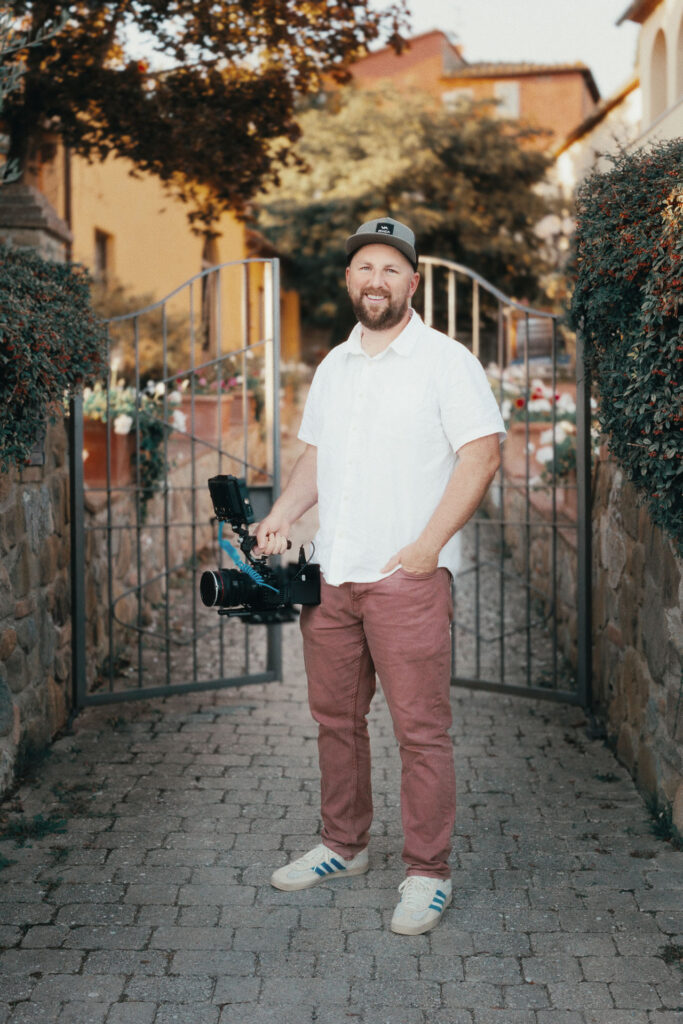
All images and video content are owned by Andrew Millett. Please email info@theemberedit.com to use any photo or video clips.
November 4, 2025

OPEN POST
So, you’re dreaming of saying “I do” with a backdrop of ancient history, breathtaking landscapes, and unforgettable cuisine? A destination wedding in Italy is more than a trend; it’s a once-in-a-lifetime experience that blends romance, adventure, and la dolce vita into the start of your marriage.
As videographers at The Ember Edit, we’ve had the privilege of capturing love stories across Italy’s most stunning regions. We’ve also explored on our own, so we’ve gathered key insights to help you plan. From the dramatic peaks of the Dolomites to the rolling hills of Tuscany and the glamorous shores of Lake Como, here’s our guide to finding your perfect Italian wedding locale.

For the Adventurous Souls: The Dolomites
If your idea of romance involves epic mountain vistas, crisp alpine air, and a sense of raw, natural beauty, then the Dolomites are your paradise. This UNESCO World Heritage site is a playground for couples who love to explore, and it provides a truly epic backdrop.
Why Choose the Dolomites for your Destination Wedding in Italy?



Imagine your wedding photos and film set against jagged peaks and emerald lakes. The light here is truly magical, especially during the golden hour, because the alpenglow creates a warm, ethereal glow—something we as videographers absolutely love to capture. So, if you’re after an unforgettable setting for an intimate, adventurous celebration, this is it.
Must-Visit Spots & Stays:
- Lake Braies: This iconic, crystal-clear lake is a must-see. We recommend arriving early to beat the crowds and take a peaceful rowboat out on the water. Plus, you can often get the dock all to yourself early in the morning for a private bridal shoot before it opens to the public!
- Seceda & Alpe di Siusi: Accessible by gondola from the charming town of Ortisei, these high-altitude meadows offer some of the most iconic views in all of Italy. We stayed at Villa Stella in Ortisei—a cozy, welcoming hotel with the huge bonus of a parking garage, which is a rarity in town! And it was within walking distance of the Alpe di Siusi gondola. Pro Tip: If you want to visit different peaks, consider a 3-day gondola pass to save money compared to individual tickets!
- Fuel Your Adventure: After a day of hiking, head to Turonda in Ortisei. Trust us on this—their pizza is SO GOOD!! It’s the perfect reward after a long day of exploration.
A Dolomites wedding is for the couple who wants their love story framed by nature’s most dramatic masterpiece. For current info on gondola hours and hiking trails, check the official Val Gardena tourism website.

A Dolomites wedding is for the couple who wants their love story framed by nature’s most dramatic masterpiece. This site has current info on gondola hours, hiking trails, weather, and other local amenities for your guests: https://www.valgardena.it/en/
For the Classic Romantics: Tuscany


When you picture a classic destination wedding in Italy, you’re probably thinking of Tuscany. This region is the heart of Renaissance art, world-renowned wine, and those dreamy, rolling hills dotted with cypress trees.
The Allure of a Tuscan Destination Wedding in Italy
Tuscany offers that picture-perfect, romantic aesthetic without the strenuous hiking of the Dolomites. Instead, it’s about leisurely wine tours, exploring medieval hilltop towns, and soaking in a rich, cultural history.
We had the pleasure of filming at Villa Catignano, and it was absolutely dreamy. This is the quintessential Tuscan villa experience for couples seeking timeless elegance.
Cultural Gems to Explore Before and After Your Destination Wedding in Italy
While the Tuscan countryside is dreamy, the region’s true magic lies in the incredible diversity of its cities and villages. From world-renowned art capitals to hidden hilltop gems, here are the essential spots to explore with your wedding party.
The Crown Jewels: Florence & Siena
- Florence (Firenze): The Cradle of the Renaissance
- Why Visit: This is the artistic heart of Italy. You can marvel at the architectural wonder of the Florence Cathedral (Duomo), cross the historic Ponte Vecchio with its iconic jewelry shops, and see Michelangelo’s David at the Accademia Gallery. The city is an open-air museum, so every corner offers a new masterpiece.
- Perfect For: Art lovers, history buffs, and any couple who wants to be immersed in breathtaking Renaissance beauty.
- Siena: The Gothic Masterpiece
- Why Visit: Siena feels like a step back in time with its stunning, shell-shaped Piazza del Campo and the intricate, black-and-white striped Siena Cathedral (Duomo). The city’s medieval character is perfectly preserved, and the view from the top of the Torre del Mangia is unforgettable.
- Perfect For: Couples and guests who adore Gothic architecture and want to experience the passion of a city with deep, historic rivalries.

The Enchanting Hill Towns: San Gimignano, Pienza & Montepulciano
- San Gimignano: The Medieval Manhattan
- Why Visit: Famous for its surviving medieval “skyscrapers,” San Gimignano offers a skyline like no other. It’s a perfectly preserved UNESCO World Heritage site that feels like stepping into a fairy tale. Plus, it’s home to award-winning gelato at Gelateria Dondoli!
- Perfect For: History lovers, photographers, and anyone wanting those iconic, towering Tuscan views.
- Pienza: The Ideal Renaissance Town
- Why Visit: This town is a masterpiece of Renaissance urban planning, commissioned by Pope Pius II. It’s perched on a hill overlooking the iconic Val d’Orcia, with perfectly manicured streets and delicious pecorino cheese shops on every corner.
- Perfect For: Foodies and photographers. The rolling, cypress-lined hills surrounding Pienza are the postcard-perfect image of Tuscany that every couple dreams of capturing.
- Montepulciano: The Wine Lover’s Peak
- Why Visit: This high-altitude town is famous for its robust Vino Nobile wine. You can tour ancient wine cellars carved deep into the city’s foundations, and the sweeping vistas from its steep streets are absolutely breathtaking.
- Perfect For: Wine-loving couples. But be prepared for a climb—the charming, steep streets lead to incredible rewards at the top.
The Hidden Gems: Lucca & The Maremma
- Lucca: The City of a Hundred Churches
- Why Visit: Encircled by massive, tree-lined Renaissance walls, Lucca is a unique and enchanting city. You can rent bikes and ride along the top of the walls for a truly memorable experience. Meanwhile, its cobblestone streets are home to numerous beautiful churches and a lively atmosphere.
- Perfect For: Families and guests looking for a flat, easy-to-navigate city with a relaxed and romantic atmosphere.
- The Maremma: Tuscany’s Wild Side
- Why Visit: For a break from the hills, the Maremma region offers a wild, rustic coastline, natural thermal hot springs (like Saturnia’s famous cascades), and a more untamed landscape. It’s a completely different, but equally captivating, side of Tuscany.
- Perfect For: Adventurous couples who want to mix a countryside wedding with a day at the hot springs or a visit to the sea.
For the Luxury Lovers: Lake Como
Synonymous with glamour and old-world charm, Lake Como has long been a magnet for those seeking a sophisticated and luxurious escape.
Why Lake Como is a Dream Venue
If your vision involves boating on serene blue waters, staying in a stunning villa right on the shoreline, and rubbing shoulders with a touch of celebrity glamour, Lake Como is your spot. The atmosphere is effortlessly elegant and incredibly romantic.
Experiencing the Lake Como Lifestyle
The Towns: Exploring the charming towns of Bellagio, Varenna, and Menaggio is a delight, because each has its own unique character, colorful buildings, and exquisite dining.
The Villas: The historic villas, like Villa Balbianello and Villa Carlotta, are wedding venues unlike any other, with immaculate gardens and breathtaking water views.
No matter which region calls to you, a destination Italy wedding is an incredible adventure. The key is to choose a location that reflects your unique love story and personalities.

Four Common Italy Wedding Mistakes to Avoid
While planning your Italian fairytale, it’s easy to get swept away by the vision. But a little practical planning is what ensures your day is as seamless as it is beautiful. Based on our experience, here are the top mistakes to watch out for:
1. Underestimating the Legalities or Travel Logistics.
- The Mistake: Assuming you can just show up and get married. Italy has specific residency requirements and paperwork. Also, not considering travel time between airports, hotels, and venues can create major stress.
- The Fix: Research the legal process early! Many couples opt for a symbolic ceremony in Italy to simplify things. And always factor in at least an extra travel day for your guests to acclimate. Here are the official requirements for getting married in Italy.
2. Not Hiring a Local Wedding Planner.
- The Mistake: Thinking you can plan a wedding from abroad without on-the-ground support.
- The Fix: A local planner is your greatest investment. They navigate language barriers, negotiate with vendors, and solve problems you didn’t see coming. Find a vetted wedding planner in Italy here.
3. Ignoring the Guest Experience.
- The Mistake: Choosing a remote, beautiful venue without considering your guests’ comfort, mobility, or budget.
- The Fix: Create a detailed “Welcome Guide” with travel tips and accommodation options. So, think about transportation from the airport and whether that stunning rifugio is accessible for elderly grandparents.
4. Forgetting About the “Shoulder Seasons.”
- The Mistake: Only considering a summer wedding, which is peak season with peak prices and crowds.
- The Fix: The “shoulder seasons” of late spring (May-June) and early fall (September-October) offer glorious weather, fewer crowds, and more vendor availability. A September wedding in Tuscany, for instance, is absolutely magical.
Planning a wedding in Italy is a journey, and being aware of these common pitfalls is the first step to avoiding them.
Want an even deeper dive? In our next blog post, “Beyond the Venue: My Italy Travel Diary & Mistakes to Avoid,” I’ll get personal and share more from our own travels—from navigating Italian roads to cultural faux pas and the one thing we wish we’d packed. You won’t want to miss it!
Ready to start planning your cinematic Italian love story? Contact us to learn how we can capture every magical moment!

All images and video content are owned by Andrew Millett. Please email info@theemberedit.com to use any photo or video clips.
November 4, 2025
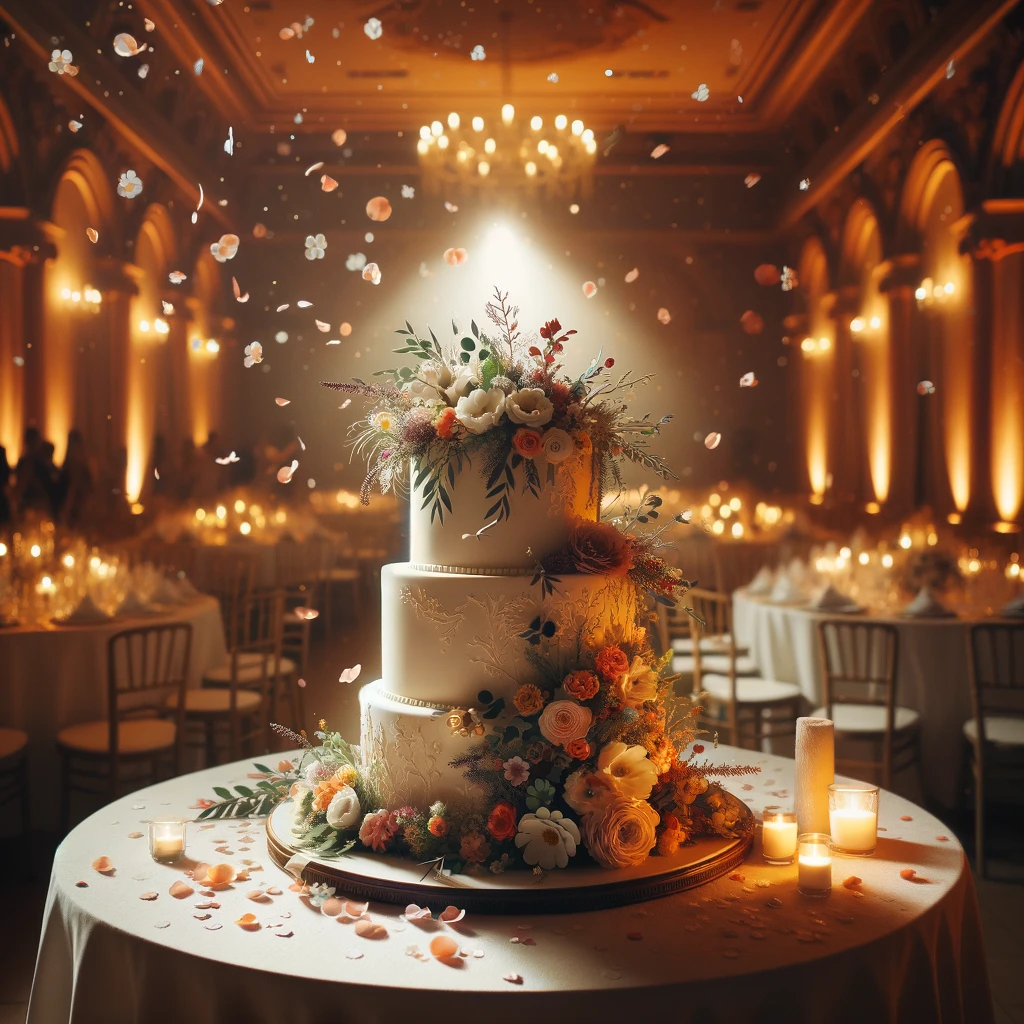
OPEN POST
The wedding cake: more than just a dessert, it’s a centerpiece that reflects the love, style, and personality of the marrying couple.
With traditions dating back centuries, today’s wedding cakes push boundaries with innovative designs, flavors, and presentations, making each cake as unique as the love story it celebrates.
As we embark on this journey of confectionery discovery, let’s explore the artistry, trends, and personal touches that make wedding cakes truly memorable.
The Foundation: Choosing Your Style
Vintage Vibes
For those who adore a touch of nostalgia, vintage-style cakes offer elegance with a nod to the past. Delicate lace patterns in icing, soft pastel hues, and classic cake toppers echo the romance of yesteryears while perfectly complementing a vintage-themed wedding.
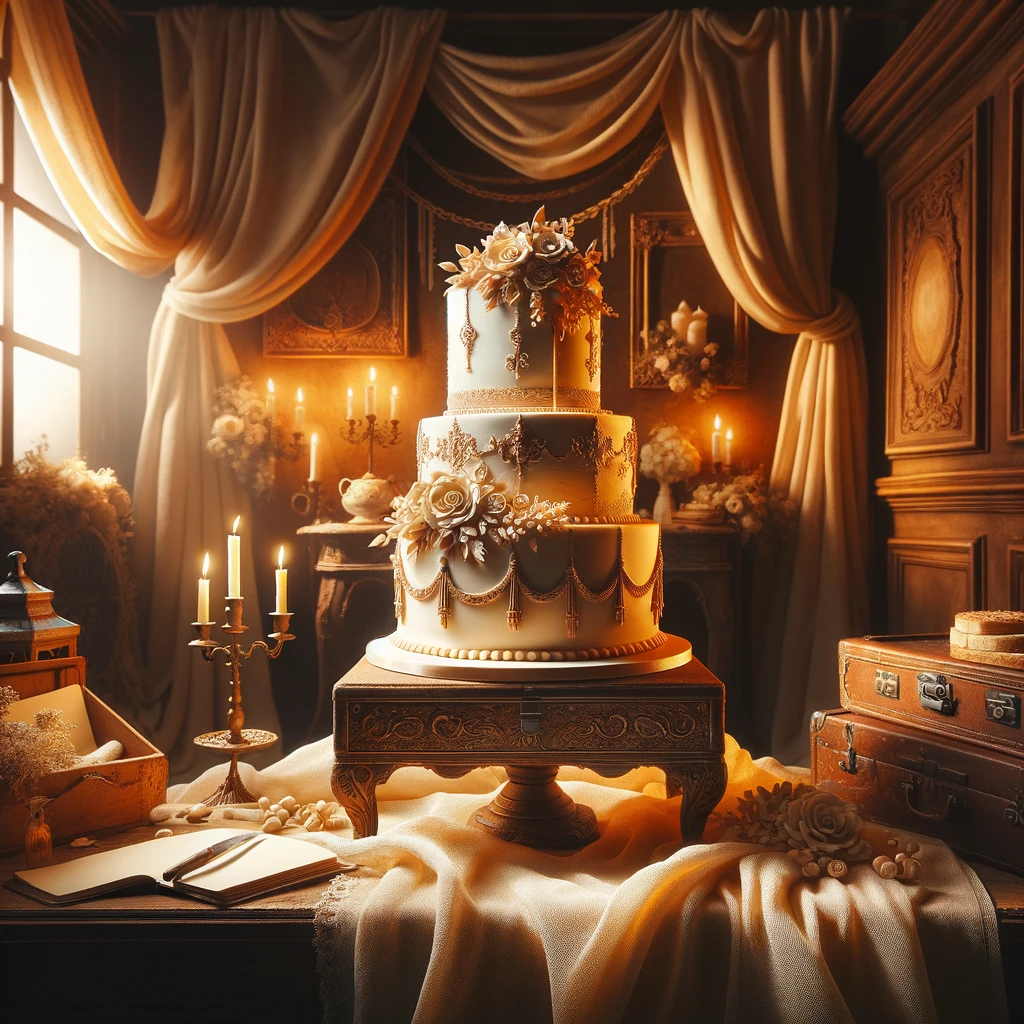
Whimsical Wonders
If your personality leans towards the playful side, a whimsical cake can capture the essence of fun and creativity. Bright colors, unusual shapes, and imaginative themes that tell a story can make your cake a reflection of your joyful journey together.
Minimalist Chic
Sometimes, less is more. Minimalist wedding cakes stand out through their simplicity, with clean lines, simple color palettes, and uncluttered designs. These cakes prove that you don’t need elaborate decorations to make a statement; the beauty lies in the quality and craftsmanship of the cake.
The Flavor Profile: Picking What’s Inside
Exotic Flavors
Why not take your guests on a culinary adventure with flavors that span the globe? From the tropical tang of passion fruit to the rich, deep notes of dark rum or the aromatic zest of cardamom, exotic flavors can transform your wedding cake into a memorable taste experience.

Seasonal Selections
Aligning your cake flavors with the season of your wedding can not only offer freshness and quality but also connect your celebration with the natural world. Summer weddings might call for light, citrusy layers, while winter celebrations could lean towards richer, spiced cakes.
Dietary Considerations
With more people embracing specific dietary preferences or requirements, offering a cake that includes gluten-free, vegan, or allergen-free options ensures that all your guests can enjoy a slice of the celebration. Many bakers are now skilled in creating cakes that are as delicious as they are inclusive.
The Artist: Selecting Your Cake Designer
Crafting Your Story
When selecting your cake designer, consider it akin to choosing an artist to paint your portrait. Their style should resonate with your personal story. Review their portfolio, meet in person if possible, and discuss how they can translate your love story into the layers, textures, and flavors of your cake.

The Trends: Staying Ahead of the Curve
Interactive Cakes
The latest buzz in wedding cakes? Interactive elements that engage your guests. Imagine a cake that reveals a cascade of flowers when cut, or hidden pockets of sweets that surprise and delight. These innovative designs add an element of surprise to your cake cutting ceremony.
Eco-Friendly Designs
Sustainability is a growing concern, and wedding cakes are joining the movement. Ingredients sourced from local, organic farms, edible decorations, and minimal waste designs are just a few ways bakers are creating eco-friendly cakes that are good for the planet and your palate.
The Presentation: Setting the Stage
Lighting and Layout
The presentation of your cake can dramatically affect its impact. Consider the lighting of your venue and how it will highlight your cake. Soft, warm lights can enhance the cake’s colors and details, while spotlighting can create a dramatic effect. The layout of the cake table, including the choice of tablecloth, flowers, and accessories, should complement the cake’s design and the overall theme of your wedding.
The Alternatives: Thinking Outside the Cake Box
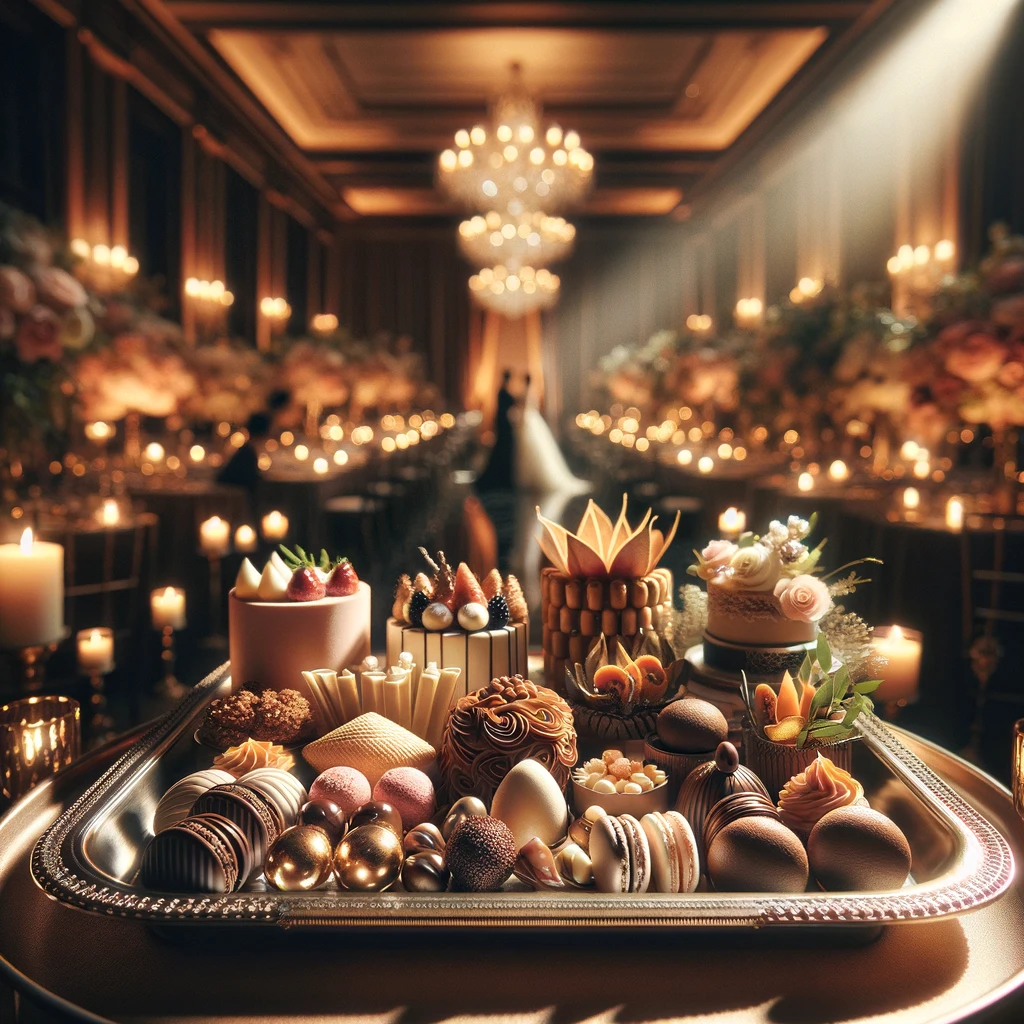
Interactive Dessert Bars
For a modern twist, interactive dessert bars allow guests to customize their treats. From build-your-own cupcake stations to gourmet s’mores bars, these interactive experiences cater to a range of tastes and are sure to leave a lasting impression.
Savory Sensations
Who says wedding cakes have to be sweet? Savory “cakes” made from tiers of cheese, charcuterie, or even sushi offer an unconventional option that can double as both a showpiece and a delicious part of your wedding menu.
The Finishing Touches: Personalization Is Key
Incorporating Cultural Elements
For couples looking to honor their heritage, incorporating cultural elements into your cake design can add a layer of personal significance. Whether it’s through specific flavors, colors, or decorative elements, these touches can make your cake a tribute to your backgrounds.
FAQs:
Q: How can we incorporate our love story into our cake design?
A: Share your story with your cake designer! Whether it’s through specific symbols, colors, or even cake toppers that represent your journey, there are countless ways to personalize your cake.
Q: Is it possible to have a beautiful cake that’s also environmentally friendly?
A: Absolutely! Discuss with your cake designer about using organic, locally sourced ingredients, edible decorations, and minimal plastic packaging. Many bakers are adept at creating stunning cakes that are also kind to the environment.
Q: How far in advance should I order my wedding cake?
A: It’s generally recommended to start the process 6 to 9 months before your wedding. This gives you ample time to research, taste, and finalize your design.
Q: Can I have a beautiful cake on a budget?
A: Absolutely! Be upfront with your cake designer about your budget. They can often suggest ways to achieve a stunning look without breaking the bank, such as simplifying the design or choosing more affordable flavors.
Q: How do I know how much cake to order?
A: A good rule of thumb is to have one slice per guest. However, if you’re serving additional desserts, you can order less. Your cake designer can help you determine the right size based on your guest count.
In Conclusion
Your wedding cake is more than just dessert; it’s a reflection of your journey, style, and tastes. As you dive into the sweet world of wedding cake planning, remember to savor every tasting, enjoy every decision, and cherish the moments that lead up to the big day. After all, the journey to finding the perfect wedding cake is just one delicious part of the larger adventure of love and marriage. Here’s to finding your slice of happiness!
Expanding our guide has allowed us to explore a wider range of styles, trends, and personal touches that can make your wedding cake uniquely yours. From considering the season and embracing dietary inclusivity to exploring interactive and eco-friendly options, the possibilities are as limitless as your imagination. May your wedding cake not only taste exquisite but also embody the essence of your special day.
If you’ve enjoyed diving into the sweet world of wedding cakes with us, imagine capturing every slice of joy, every moment of laughter, and the beautiful journey of your special day through the art of videography. At The Ember Edit, we specialize in creating heartfelt wedding videos that tell your unique story with elegance and emotion. Whether you dream of a whimsical, romantic, or utterly unique wedding video, our team is dedicated to bringing those dreams to life. Visit us at The Ember Edit to explore our wedding videography services and let us help you cherish your precious moments forever.
February 14, 2024

OPEN POST
The wedding cake: more than just a dessert, it’s a centerpiece that reflects the love, style, and personality of the marrying couple.
With traditions dating back centuries, today’s wedding cakes push boundaries with innovative designs, flavors, and presentations, making each cake as unique as the love story it celebrates.
As we embark on this journey of confectionery discovery, let’s explore the artistry, trends, and personal touches that make wedding cakes truly memorable.
The Foundation: Choosing Your Style
Vintage Vibes
For those who adore a touch of nostalgia, vintage-style cakes offer elegance with a nod to the past. Delicate lace patterns in icing, soft pastel hues, and classic cake toppers echo the romance of yesteryears while perfectly complementing a vintage-themed wedding.

Whimsical Wonders
If your personality leans towards the playful side, a whimsical cake can capture the essence of fun and creativity. Bright colors, unusual shapes, and imaginative themes that tell a story can make your cake a reflection of your joyful journey together.
Minimalist Chic
Sometimes, less is more. Minimalist wedding cakes stand out through their simplicity, with clean lines, simple color palettes, and uncluttered designs. These cakes prove that you don’t need elaborate decorations to make a statement; the beauty lies in the quality and craftsmanship of the cake.
The Flavor Profile: Picking What’s Inside
Exotic Flavors
Why not take your guests on a culinary adventure with flavors that span the globe? From the tropical tang of passion fruit to the rich, deep notes of dark rum or the aromatic zest of cardamom, exotic flavors can transform your wedding cake into a memorable taste experience.

Seasonal Selections
Aligning your cake flavors with the season of your wedding can not only offer freshness and quality but also connect your celebration with the natural world. Summer weddings might call for light, citrusy layers, while winter celebrations could lean towards richer, spiced cakes.
Dietary Considerations
With more people embracing specific dietary preferences or requirements, offering a cake that includes gluten-free, vegan, or allergen-free options ensures that all your guests can enjoy a slice of the celebration. Many bakers are now skilled in creating cakes that are as delicious as they are inclusive.
The Artist: Selecting Your Cake Designer
Crafting Your Story
When selecting your cake designer, consider it akin to choosing an artist to paint your portrait. Their style should resonate with your personal story. Review their portfolio, meet in person if possible, and discuss how they can translate your love story into the layers, textures, and flavors of your cake.

The Trends: Staying Ahead of the Curve
Interactive Cakes
The latest buzz in wedding cakes? Interactive elements that engage your guests. Imagine a cake that reveals a cascade of flowers when cut, or hidden pockets of sweets that surprise and delight. These innovative designs add an element of surprise to your cake cutting ceremony.
Eco-Friendly Designs
Sustainability is a growing concern, and wedding cakes are joining the movement. Ingredients sourced from local, organic farms, edible decorations, and minimal waste designs are just a few ways bakers are creating eco-friendly cakes that are good for the planet and your palate.
The Presentation: Setting the Stage
Lighting and Layout
The presentation of your cake can dramatically affect its impact. Consider the lighting of your venue and how it will highlight your cake. Soft, warm lights can enhance the cake’s colors and details, while spotlighting can create a dramatic effect. The layout of the cake table, including the choice of tablecloth, flowers, and accessories, should complement the cake’s design and the overall theme of your wedding.
The Alternatives: Thinking Outside the Cake Box

Interactive Dessert Bars
For a modern twist, interactive dessert bars allow guests to customize their treats. From build-your-own cupcake stations to gourmet s’mores bars, these interactive experiences cater to a range of tastes and are sure to leave a lasting impression.
Savory Sensations
Who says wedding cakes have to be sweet? Savory “cakes” made from tiers of cheese, charcuterie, or even sushi offer an unconventional option that can double as both a showpiece and a delicious part of your wedding menu.
The Finishing Touches: Personalization Is Key
Incorporating Cultural Elements
For couples looking to honor their heritage, incorporating cultural elements into your cake design can add a layer of personal significance. Whether it’s through specific flavors, colors, or decorative elements, these touches can make your cake a tribute to your backgrounds.
FAQs:
Q: How can we incorporate our love story into our cake design?
A: Share your story with your cake designer! Whether it’s through specific symbols, colors, or even cake toppers that represent your journey, there are countless ways to personalize your cake.
Q: Is it possible to have a beautiful cake that’s also environmentally friendly?
A: Absolutely! Discuss with your cake designer about using organic, locally sourced ingredients, edible decorations, and minimal plastic packaging. Many bakers are adept at creating stunning cakes that are also kind to the environment.
Q: How far in advance should I order my wedding cake?
A: It’s generally recommended to start the process 6 to 9 months before your wedding. This gives you ample time to research, taste, and finalize your design.
Q: Can I have a beautiful cake on a budget?
A: Absolutely! Be upfront with your cake designer about your budget. They can often suggest ways to achieve a stunning look without breaking the bank, such as simplifying the design or choosing more affordable flavors.
Q: How do I know how much cake to order?
A: A good rule of thumb is to have one slice per guest. However, if you’re serving additional desserts, you can order less. Your cake designer can help you determine the right size based on your guest count.
In Conclusion
Your wedding cake is more than just dessert; it’s a reflection of your journey, style, and tastes. As you dive into the sweet world of wedding cake planning, remember to savor every tasting, enjoy every decision, and cherish the moments that lead up to the big day. After all, the journey to finding the perfect wedding cake is just one delicious part of the larger adventure of love and marriage. Here’s to finding your slice of happiness!
Expanding our guide has allowed us to explore a wider range of styles, trends, and personal touches that can make your wedding cake uniquely yours. From considering the season and embracing dietary inclusivity to exploring interactive and eco-friendly options, the possibilities are as limitless as your imagination. May your wedding cake not only taste exquisite but also embody the essence of your special day.
If you’ve enjoyed diving into the sweet world of wedding cakes with us, imagine capturing every slice of joy, every moment of laughter, and the beautiful journey of your special day through the art of videography. At The Ember Edit, we specialize in creating heartfelt wedding videos that tell your unique story with elegance and emotion. Whether you dream of a whimsical, romantic, or utterly unique wedding video, our team is dedicated to bringing those dreams to life. Visit us at The Ember Edit to explore our wedding videography services and let us help you cherish your precious moments forever.
February 14, 2024
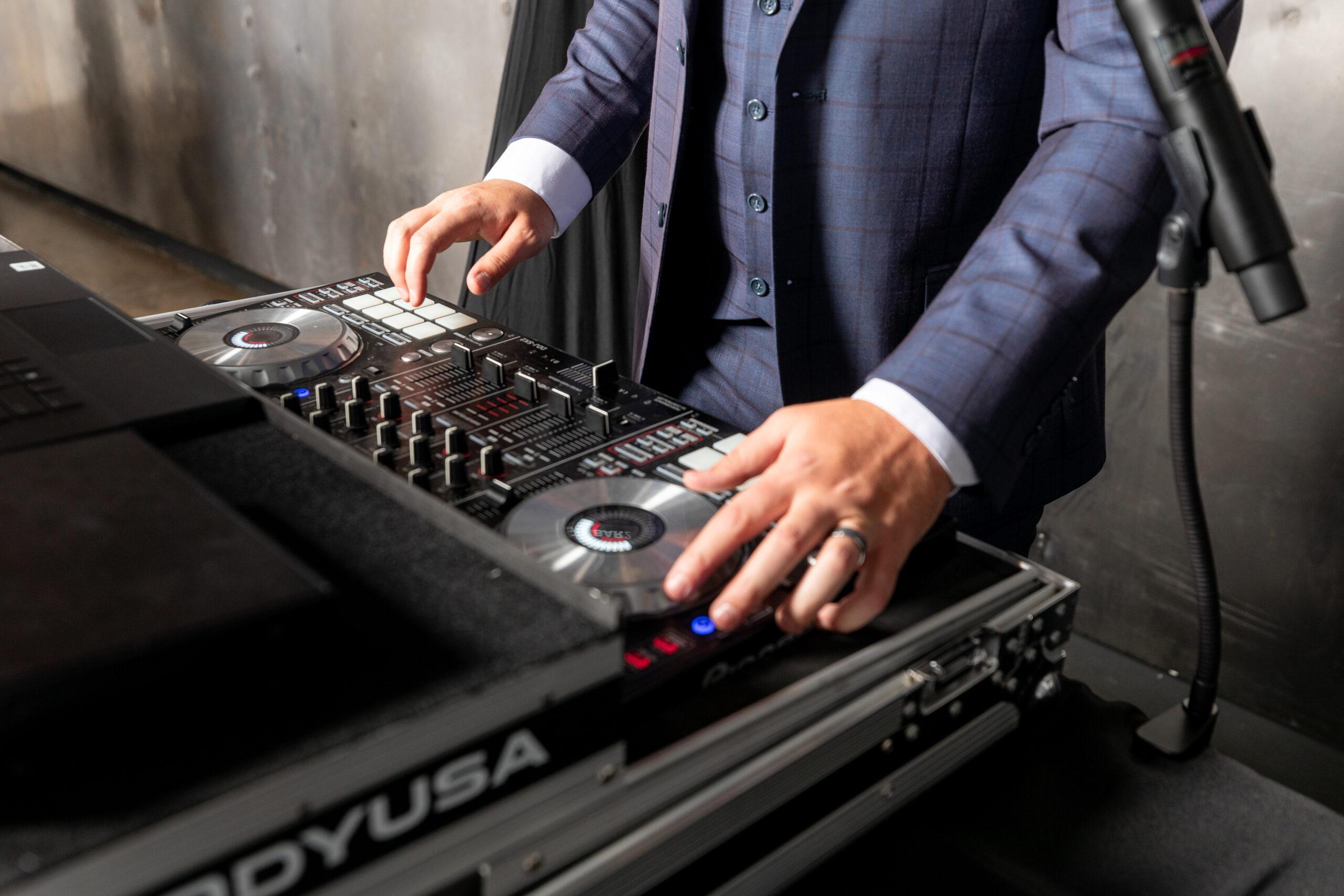
OPEN POST
Music is the unseen thread that weaves through every moment of your wedding, binding the day together in harmony and love. From the moment your guests arrive until the last dance under the stars, the music you choose sets the tone, evokes emotions, and creates memories that last a lifetime. But with so many genres, classics, and modern hits to choose from, where do you even begin? In this comprehensive guide, we’ll walk you through selecting the perfect wedding music that resonates with your unique love story and sets the mood for your unforgettable day.
The Prelude: Setting the Scene
Understanding Your Wedding’s Theme and Style
Your wedding music should be a reflection of both your personalities and the overall theme of your day. Are you dreaming of a fairytale wedding with romantic ballads, or a beach ceremony with laid-back acoustic vibes? Identifying the mood you want to create is the first step in selecting music that will enhance and complement your wedding’s atmosphere.
Creating a Cohesive Musical Journey
Think of your wedding day as a story, with each part requiring its own soundtrack. From the prelude to the processional, ceremony, and reception, the music should flow seamlessly and guide your guests through the celebration, evoking the intended emotions at every turn.
The Processional: Walking Down the Aisle
Choosing the Perfect Entrance
The moment you walk down the aisle is one of the most anticipated parts of the day. The music you choose for your processional sets the tone for the ceremony and can range from traditional pieces like Pachelbel’s “Canon in D” to more personal selections that speak to your heart. Consider a piece that builds in intensity, drawing all eyes to you as you make your entrance.
Incorporating Live Musicians
Live musicians, such as a string quartet or a solo guitarist, can add a touch of elegance and intimacy to your ceremony. The live performance of your chosen processional song can make the moment even more touching and memorable.
The Ceremony: Exchanging Vows
Background Music for Special Moments
During the ceremony, music can play a subtle yet powerful role in enhancing special moments, such as the lighting of the unity candle or the exchange of vows. A soft instrumental piece or a meaningful song played quietly in the background can heighten the emotional impact of these rituals.
The Recessional: A Joyful Exit
As you walk back down the aisle as a newly married couple, the recessional music should reflect your joy and excitement. Upbeat and celebratory tunes are perfect for this moment, signaling the beginning of the celebration to come.
The Reception: Celebrating Your Union
Cocktail Hour and Dinner Music
The cocktail hour and dinner provide an opportunity to set a relaxed and sociable tone with music. Jazz standards, acoustic covers, or even a live band can create a sophisticated backdrop that encourages conversation and mingling.
The First Dance: An Intimate Moment
Your first dance is a deeply personal moment, a chance to express your love and commitment through music. Whether it’s a timeless classic or a modern hit that holds special meaning to you, choose a song that feels like it was written just for you.
Party Time: Keeping the Dance Floor Alive
The reception is your chance to let loose and celebrate with your loved ones. Your DJ or band should play a mix of genres and eras that appeal to all your guests, from the young to the young at heart. Don’t forget to include a few of your personal favorites to make the night truly your own.
Working With Musicians and DJs
Communicating Your Vision
Whether you’re hiring a DJ, a band, or individual musicians, clear communication is key. Share your music preferences, do-not-play lists, and any special requests to ensure they understand the mood you’re aiming to create.
The Importance of a Good MC
A good MC (Master of Ceremonies) is crucial in maintaining the flow of the evening. They not only announce key events but also read the room and adjust the music accordingly to keep the energy up and ensure everyone has a great time.
Tips for Selecting Your Wedding Music
- Start Early: Begin thinking about your wedding music early in the planning process. This gives you plenty of time to explore your options and make decisions without feeling rushed.
- Consider Your Guests: While the music should reflect your tastes, considering your guests’ preferences can ensure everyone has a memorable time.
- Be True to Yourselves: The most important aspect of selecting your wedding music is that it reflects you as a couple. Choose songs that tell your story and resonate with your personal style.
- Think About Logistics: The size of your venue, the acoustics, and any noise restrictions can all impact your music choices. Be sure to discuss these aspects with your venue and musicians.
- Create a Balance: Aim for a good mix of genres and tempos throughout the day to cater to different moods and moments.
FAQs:
Q: How many songs do I need for my wedding?
A: The number of songs you’ll need depends on the length and structure of your wedding. A typical list might include 3-5 songs for the ceremony, 20-30 songs for the cocktail hour and dinner, and 50-100 songs for the reception.
Q: Can we have a friend or family member be our DJ?
A: While having a friend or family member DJ can add a personal touch, professional DJs bring experience, a vast music library, and the ability to read and respond to the crowd, ensuring your reception is a hit.
Q: Should we have a band or a DJ?
A: This comes down to personal preference and budget. Bands provide a live performance that’s hard to replicate, while DJs offer a wider variety of music and flexibility. Consider what atmosphere you want to create and choose accordingly.
In Conclusion
Music is the heartbeat of your wedding celebration, setting the mood, evoking emotions, and creating a backdrop for your most cherished memories. By carefully selecting each song, from the processional to the last dance, you’re crafting a soundtrack that not only complements the beauty of the day but also celebrates the unique love you share. Remember, the best wedding music is the music that speaks to you, tells your story, and makes your heart sing. Now, let the music play, and let your love story unfold to the soundtrack of your dreams.
For those moments in your wedding that music alone can’t capture, consider the timeless art of videography with The Ember Edit.
February 13, 2024

OPEN POST
Music is the unseen thread that weaves through every moment of your wedding, binding the day together in harmony and love. From the moment your guests arrive until the last dance under the stars, the music you choose sets the tone, evokes emotions, and creates memories that last a lifetime. But with so many genres, classics, and modern hits to choose from, where do you even begin? In this comprehensive guide, we’ll walk you through selecting the perfect wedding music that resonates with your unique love story and sets the mood for your unforgettable day.
The Prelude: Setting the Scene
Understanding Your Wedding’s Theme and Style
Your wedding music should be a reflection of both your personalities and the overall theme of your day. Are you dreaming of a fairytale wedding with romantic ballads, or a beach ceremony with laid-back acoustic vibes? Identifying the mood you want to create is the first step in selecting music that will enhance and complement your wedding’s atmosphere.
Creating a Cohesive Musical Journey
Think of your wedding day as a story, with each part requiring its own soundtrack. From the prelude to the processional, ceremony, and reception, the music should flow seamlessly and guide your guests through the celebration, evoking the intended emotions at every turn.
The Processional: Walking Down the Aisle
Choosing the Perfect Entrance
The moment you walk down the aisle is one of the most anticipated parts of the day. The music you choose for your processional sets the tone for the ceremony and can range from traditional pieces like Pachelbel’s “Canon in D” to more personal selections that speak to your heart. Consider a piece that builds in intensity, drawing all eyes to you as you make your entrance.
Incorporating Live Musicians
Live musicians, such as a string quartet or a solo guitarist, can add a touch of elegance and intimacy to your ceremony. The live performance of your chosen processional song can make the moment even more touching and memorable.
The Ceremony: Exchanging Vows
Background Music for Special Moments
During the ceremony, music can play a subtle yet powerful role in enhancing special moments, such as the lighting of the unity candle or the exchange of vows. A soft instrumental piece or a meaningful song played quietly in the background can heighten the emotional impact of these rituals.
The Recessional: A Joyful Exit
As you walk back down the aisle as a newly married couple, the recessional music should reflect your joy and excitement. Upbeat and celebratory tunes are perfect for this moment, signaling the beginning of the celebration to come.
The Reception: Celebrating Your Union
Cocktail Hour and Dinner Music
The cocktail hour and dinner provide an opportunity to set a relaxed and sociable tone with music. Jazz standards, acoustic covers, or even a live band can create a sophisticated backdrop that encourages conversation and mingling.
The First Dance: An Intimate Moment
Your first dance is a deeply personal moment, a chance to express your love and commitment through music. Whether it’s a timeless classic or a modern hit that holds special meaning to you, choose a song that feels like it was written just for you.
Party Time: Keeping the Dance Floor Alive
The reception is your chance to let loose and celebrate with your loved ones. Your DJ or band should play a mix of genres and eras that appeal to all your guests, from the young to the young at heart. Don’t forget to include a few of your personal favorites to make the night truly your own.
Working With Musicians and DJs
Communicating Your Vision
Whether you’re hiring a DJ, a band, or individual musicians, clear communication is key. Share your music preferences, do-not-play lists, and any special requests to ensure they understand the mood you’re aiming to create.
The Importance of a Good MC
A good MC (Master of Ceremonies) is crucial in maintaining the flow of the evening. They not only announce key events but also read the room and adjust the music accordingly to keep the energy up and ensure everyone has a great time.
Tips for Selecting Your Wedding Music
- Start Early: Begin thinking about your wedding music early in the planning process. This gives you plenty of time to explore your options and make decisions without feeling rushed.
- Consider Your Guests: While the music should reflect your tastes, considering your guests’ preferences can ensure everyone has a memorable time.
- Be True to Yourselves: The most important aspect of selecting your wedding music is that it reflects you as a couple. Choose songs that tell your story and resonate with your personal style.
- Think About Logistics: The size of your venue, the acoustics, and any noise restrictions can all impact your music choices. Be sure to discuss these aspects with your venue and musicians.
- Create a Balance: Aim for a good mix of genres and tempos throughout the day to cater to different moods and moments.
FAQs:
Q: How many songs do I need for my wedding?
A: The number of songs you’ll need depends on the length and structure of your wedding. A typical list might include 3-5 songs for the ceremony, 20-30 songs for the cocktail hour and dinner, and 50-100 songs for the reception.
Q: Can we have a friend or family member be our DJ?
A: While having a friend or family member DJ can add a personal touch, professional DJs bring experience, a vast music library, and the ability to read and respond to the crowd, ensuring your reception is a hit.
Q: Should we have a band or a DJ?
A: This comes down to personal preference and budget. Bands provide a live performance that’s hard to replicate, while DJs offer a wider variety of music and flexibility. Consider what atmosphere you want to create and choose accordingly.
In Conclusion
Music is the heartbeat of your wedding celebration, setting the mood, evoking emotions, and creating a backdrop for your most cherished memories. By carefully selecting each song, from the processional to the last dance, you’re crafting a soundtrack that not only complements the beauty of the day but also celebrates the unique love you share. Remember, the best wedding music is the music that speaks to you, tells your story, and makes your heart sing. Now, let the music play, and let your love story unfold to the soundtrack of your dreams.
For those moments in your wedding that music alone can’t capture, consider the timeless art of videography with The Ember Edit.
February 13, 2024
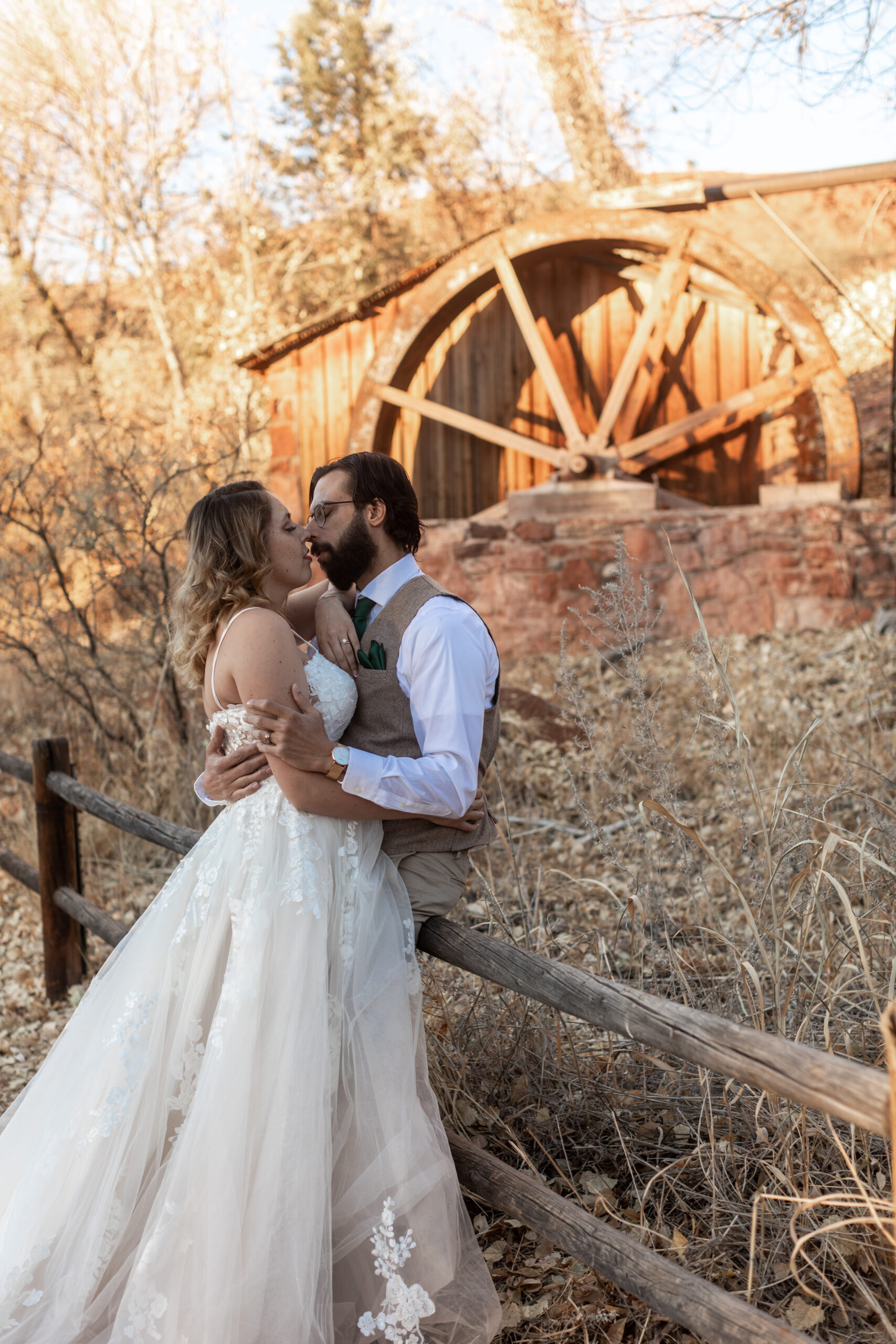
OPEN POST
Introduction: Wedding photography is a timeless art form that preserves the magic and memories of one of the most significant days in a couple’s life. From the exchange of vows to the joyous celebration with loved ones, every moment is precious and deserves to be captured beautifully. In this comprehensive guide, we’ll explore essential wedding photography tips to ensure that you capture everlasting memories that you’ll cherish for a lifetime.
- Plan Ahead for the Perfect Shots: Before the big day arrives, take the time to plan your shots carefully. Meet with the couple to discuss their vision, preferred styles, and must-have shots. Create a shot list that includes key moments such as getting ready, the first look, the ceremony, and group portraits. Planning ahead allows you to anticipate special moments and ensures that nothing is overlooked on the day of the wedding.
- Scout the Location: Familiarize yourself with the wedding venue (Want help choosing your wedding venue? Click Here) and surrounding areas to identify the best locations for photoshoots. Look for scenic backdrops, natural lighting, and unique architectural features that will enhance your photos. Consider visiting the venue at different times of the day to assess the lighting conditions and plan accordingly.
- Capture Candid Moments: Some of the most memorable photos are captured when the couple and their guests are unaware of the camera. Be prepared to capture candid moments throughout the day, from emotional exchanges between the couple to spontaneous laughter among friends and family. Candid shots add authenticity and emotion to your wedding album, capturing the essence of the day.
- Utilize Natural Light: Natural light can work wonders for wedding photography, creating soft, flattering tones and highlighting the natural beauty of the surroundings. Whenever possible, opt for outdoor locations or well-lit indoor spaces for your photoshoots. Avoid harsh midday sun by scheduling outdoor shoots during the golden hour, shortly after sunrise or before sunset, when the light is soft and warm.
- Communicate with the Couple: Effective communication is key to capturing the couple’s vision and ensuring their satisfaction with the final photos. Establish clear expectations, discuss any preferences or concerns, and be open to feedback throughout the process. Encourage the couple to express their ideas and desires for their wedding photos, and work together to bring their vision to life.
- Focus on Details and Emotions: Pay attention to the little details and emotions that make each wedding unique. Capture the intricate details of the bride’s dress, the groom’s boutonniere, and the decorative elements of the venue. Look for moments of love, joy, and connection between the couple and their loved ones, and strive to capture the emotions as they unfold naturally.
- Be Prepared for Challenging Conditions: Weddings can present unpredictable challenges, from inclement weather to low-light conditions. Be prepared to adapt to changing circumstances and think creatively to overcome obstacles. Bring along additional lighting equipment, lenses, and accessories to ensure that you’re prepared for any situation that may arise.
- Stay Organized and Flexible: Keep your equipment organized and easily accessible throughout the day to ensure smooth transitions between shots. Be flexible and adaptable to changes in the schedule or unforeseen circumstances, such as delays or last-minute adjustments. A calm and composed demeanor will help keep the couple and their guests at ease, allowing you to capture genuine moments of joy and celebration.
- Edit and Enhance with Care: After the wedding day is over, take the time to carefully edit and enhance your photos to bring out their full potential. Use editing software to adjust exposure, color balance, and composition, while maintaining a natural and timeless aesthetic. Pay attention to consistency across your photos, ensuring that they flow seamlessly together in the final wedding album.
- Deliver with Professionalism: Finally, deliver your wedding photos with professionalism and attention to detail. Create a personalized online gallery or physical album for the couple to view and share with their loved ones. Provide clear instructions for downloading and ordering prints, and offer additional services such as custom framing or photo books to enhance their wedding memories further.
Conclusion: Capturing everlasting memories through wedding photography requires careful planning, creativity, and attention to detail. By following these wedding photography tips, you can ensure that you capture the beauty, emotion, and joy of the day in stunning, timeless photos that the couple will treasure for a lifetime. From planning ahead and scouting locations to capturing candid moments and delivering with professionalism, each step plays a crucial role in creating a wedding album that tells the unique story of the couple’s love and celebration.
February 13, 2024

OPEN POST
Introduction: Wedding photography is a timeless art form that preserves the magic and memories of one of the most significant days in a couple’s life. From the exchange of vows to the joyous celebration with loved ones, every moment is precious and deserves to be captured beautifully. In this comprehensive guide, we’ll explore essential wedding photography tips to ensure that you capture everlasting memories that you’ll cherish for a lifetime.
- Plan Ahead for the Perfect Shots: Before the big day arrives, take the time to plan your shots carefully. Meet with the couple to discuss their vision, preferred styles, and must-have shots. Create a shot list that includes key moments such as getting ready, the first look, the ceremony, and group portraits. Planning ahead allows you to anticipate special moments and ensures that nothing is overlooked on the day of the wedding.
- Scout the Location: Familiarize yourself with the wedding venue (Want help choosing your wedding venue? Click Here) and surrounding areas to identify the best locations for photoshoots. Look for scenic backdrops, natural lighting, and unique architectural features that will enhance your photos. Consider visiting the venue at different times of the day to assess the lighting conditions and plan accordingly.
- Capture Candid Moments: Some of the most memorable photos are captured when the couple and their guests are unaware of the camera. Be prepared to capture candid moments throughout the day, from emotional exchanges between the couple to spontaneous laughter among friends and family. Candid shots add authenticity and emotion to your wedding album, capturing the essence of the day.
- Utilize Natural Light: Natural light can work wonders for wedding photography, creating soft, flattering tones and highlighting the natural beauty of the surroundings. Whenever possible, opt for outdoor locations or well-lit indoor spaces for your photoshoots. Avoid harsh midday sun by scheduling outdoor shoots during the golden hour, shortly after sunrise or before sunset, when the light is soft and warm.
- Communicate with the Couple: Effective communication is key to capturing the couple’s vision and ensuring their satisfaction with the final photos. Establish clear expectations, discuss any preferences or concerns, and be open to feedback throughout the process. Encourage the couple to express their ideas and desires for their wedding photos, and work together to bring their vision to life.
- Focus on Details and Emotions: Pay attention to the little details and emotions that make each wedding unique. Capture the intricate details of the bride’s dress, the groom’s boutonniere, and the decorative elements of the venue. Look for moments of love, joy, and connection between the couple and their loved ones, and strive to capture the emotions as they unfold naturally.
- Be Prepared for Challenging Conditions: Weddings can present unpredictable challenges, from inclement weather to low-light conditions. Be prepared to adapt to changing circumstances and think creatively to overcome obstacles. Bring along additional lighting equipment, lenses, and accessories to ensure that you’re prepared for any situation that may arise.
- Stay Organized and Flexible: Keep your equipment organized and easily accessible throughout the day to ensure smooth transitions between shots. Be flexible and adaptable to changes in the schedule or unforeseen circumstances, such as delays or last-minute adjustments. A calm and composed demeanor will help keep the couple and their guests at ease, allowing you to capture genuine moments of joy and celebration.
- Edit and Enhance with Care: After the wedding day is over, take the time to carefully edit and enhance your photos to bring out their full potential. Use editing software to adjust exposure, color balance, and composition, while maintaining a natural and timeless aesthetic. Pay attention to consistency across your photos, ensuring that they flow seamlessly together in the final wedding album.
- Deliver with Professionalism: Finally, deliver your wedding photos with professionalism and attention to detail. Create a personalized online gallery or physical album for the couple to view and share with their loved ones. Provide clear instructions for downloading and ordering prints, and offer additional services such as custom framing or photo books to enhance their wedding memories further.
Conclusion: Capturing everlasting memories through wedding photography requires careful planning, creativity, and attention to detail. By following these wedding photography tips, you can ensure that you capture the beauty, emotion, and joy of the day in stunning, timeless photos that the couple will treasure for a lifetime. From planning ahead and scouting locations to capturing candid moments and delivering with professionalism, each step plays a crucial role in creating a wedding album that tells the unique story of the couple’s love and celebration.
February 13, 2024
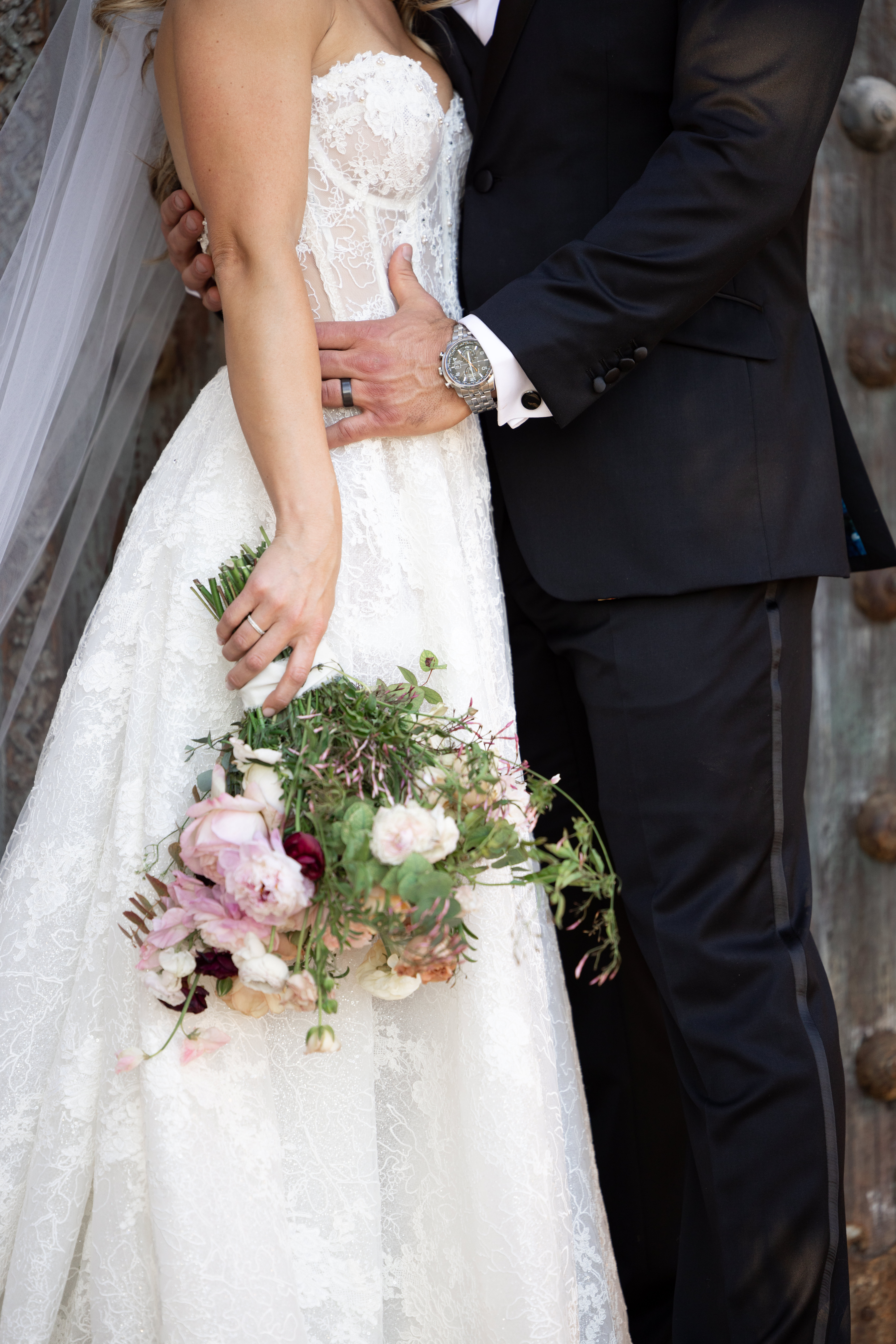
OPEN POST
Selecting the right wedding officiant is a crucial decision in planning your special day. Your officiant plays a significant role in the ceremony, setting the tone and guiding you through the exchange of vows. Whether you’re envisioning a traditional religious ceremony or a personalized and secular celebration, finding the perfect officiant is essential. The Ember Edit is the renowned wedding videography service provider in Scottsdale, submit a form to get in touch with us. In this comprehensive guide, we’ll delve into the factors to consider when choosing your wedding officiant, ensuring a memorable and meaningful ceremony for you and your partner.
Understanding the Role of a Wedding Officiant
Before diving into the selection process, it’s essential to understand the role of a wedding officiant. Beyond simply leading the ceremony, an officiant is responsible for:
- Crafting the ceremony script: The officiant will work with you to create a ceremony that reflects your beliefs, values, and love story. This may involve incorporating religious or cultural traditions, personal anecdotes, and meaningful readings.
- Conducting the ceremony: On the wedding day, the officiant will guide you and your partner through the ceremony, leading the exchange of vows, ring exchange, and any other rituals or traditions you’ve chosen to include.
- Filing legal paperwork: After the ceremony, the officiant is responsible for completing and filing the necessary marriage license paperwork with the appropriate authorities.
With these responsibilities in mind, it’s crucial to choose an officiant who not only aligns with your beliefs and values but also possesses the necessary experience and expertise to officiate your wedding ceremony.
Factors to Consider When Choosing a Wedding Officiant
- Determine Your Ceremony Style and Preferences
Before beginning your search for an officiant, discuss with your partner the type of ceremony you envision. Are you planning a religious ceremony, a secular celebration, or a blend of both? Do you prefer a traditional ceremony with formal language, or do you envision a more casual and personalized approach? Understanding your ceremony style and preferences will help narrow down your options and guide your search for the perfect officiant.
- Consider Your Officiant Options
When it comes to officiating a wedding, you have several options to consider:
- Religious Officiant: If you’re planning a religious ceremony, you may choose to have a clergy member from your faith tradition officiate. This could be a priest, rabbi, minister, imam, or other religious leader.
- Civil Officiant: For secular or non-religious ceremonies, you may opt for a civil officiant, such as a judge, justice of the peace, or a certified wedding officiant.
- Friend or Family Member: Some couples choose to have a close friend or family member officiate their wedding ceremony. This option adds a personal touch to the ceremony but requires careful consideration to ensure the individual is comfortable and capable of fulfilling the role.
- Professional Officiant: If you prefer a neutral and experienced officiant, you may hire a professional wedding officiant or celebrant. These individuals specialize in crafting personalized ceremonies and can accommodate a wide range of beliefs and preferences.
Consider your preferences, as well as any religious or cultural traditions you wish to incorporate, when selecting the type of officiant for your ceremony.
- Research and Gather Recommendations
Once you’ve determined your ceremony style and officiant options, it’s time to start researching potential officiants. Begin by asking friends, family members, and wedding vendors for recommendations. Personal referrals are often the most reliable way to find a trusted officiant who comes highly recommended.
Additionally, utilize online resources such as wedding directories, officiant websites, and review platforms to research officiants in your area. Read reviews, browse portfolios, and gather information about each officiant’s experience, style, and approach to ceremonies.
- Schedule Interviews and Meetings
After compiling a list of potential officiants, schedule interviews or meetings with each candidate to discuss your ceremony vision, preferences, and expectations. Use this opportunity to get to know the officiant on a personal level, ask questions about their experience and approach to officiating weddings, and determine if they’re the right fit for your ceremony.
During the meeting, consider asking the following questions:
- What is your officiating style? How do you customize ceremonies to reflect the couple’s personalities and beliefs?
- Can you accommodate specific religious or cultural traditions?
- How do you handle unexpected situations or changes to the ceremony script?
- What is your availability on our wedding date, and what is your fee for officiating?
- Can you provide references or testimonials from past couples you’ve worked with?
Take note of each officiant’s demeanor, communication style, and professionalism during the meeting, as these factors will contribute to the overall success of your ceremony.
- Review Ceremony Scripts and Customization Options
Before making your final decision, review samples of the officiant’s ceremony scripts and discuss customization options. A skilled officiant will work with you to create a personalized ceremony script that reflects your love story, beliefs, and values. Reviewing ceremony scripts will give you insight into the officiant’s writing style, tone, and ability to tailor the ceremony to your preferences.
Additionally, discuss any special requests or customizations you’d like to incorporate into the ceremony, such as readings, rituals, or symbolic gestures. Ensure that the officiant is receptive to your ideas and willing to collaborate with you to create a ceremony that is meaningful and memorable.
- Confirm Legal Requirements and Paperwork
Before finalizing your decision, confirm that the officiant is licensed and authorized to perform weddings in your state or country. Ensure that they are familiar with the legal requirements for officiating a wedding in your location and are prepared to handle the necessary paperwork, such as obtaining and filing the marriage license.
It’s also essential to discuss any additional fees or expenses associated with officiating your wedding, such as travel expenses or rehearsal fees. Clarify the officiant’s fee structure and payment schedule to avoid any misunderstandings or surprises down the line.
Making the Final Decision
After meeting with potential officiants, reviewing ceremony scripts, and considering your options, it’s time to make the final decision. Trust your instincts and choose the officiant who resonates with you and your partner, aligns with your ceremony vision, and possesses the experience and expertise to officiate your wedding with professionalism and care.
Once you’ve selected your officiant, finalize the details of the ceremony, sign any necessary contracts or agreements, and communicate regularly with your officiant leading up to the wedding day. Collaborate closely with your officiant to finalize the ceremony script, coordinate logistics, and ensure that everything is in place for a smooth and memorable ceremony.
Conclusion
Choosing the perfect wedding officiant is a significant decision that will shape the tone and atmosphere of your wedding ceremony. By considering your ceremony style and preferences, researching officiant options, scheduling interviews and meetings, reviewing ceremony scripts, confirming legal requirements, and trusting your instincts, you can find the ideal officiant to officiate your special day. With the right officiant by your side, you’ll exchange vows in a ceremony that is meaningful, personalized, and unforgettable, setting the stage for a lifetime of love and happiness together.
February 13, 2024

OPEN POST
Selecting the right wedding officiant is a crucial decision in planning your special day. Your officiant plays a significant role in the ceremony, setting the tone and guiding you through the exchange of vows. Whether you’re envisioning a traditional religious ceremony or a personalized and secular celebration, finding the perfect officiant is essential. The Ember Edit is the renowned wedding videography service provider in Scottsdale, submit a form to get in touch with us. In this comprehensive guide, we’ll delve into the factors to consider when choosing your wedding officiant, ensuring a memorable and meaningful ceremony for you and your partner.
Understanding the Role of a Wedding Officiant
Before diving into the selection process, it’s essential to understand the role of a wedding officiant. Beyond simply leading the ceremony, an officiant is responsible for:
- Crafting the ceremony script: The officiant will work with you to create a ceremony that reflects your beliefs, values, and love story. This may involve incorporating religious or cultural traditions, personal anecdotes, and meaningful readings.
- Conducting the ceremony: On the wedding day, the officiant will guide you and your partner through the ceremony, leading the exchange of vows, ring exchange, and any other rituals or traditions you’ve chosen to include.
- Filing legal paperwork: After the ceremony, the officiant is responsible for completing and filing the necessary marriage license paperwork with the appropriate authorities.
With these responsibilities in mind, it’s crucial to choose an officiant who not only aligns with your beliefs and values but also possesses the necessary experience and expertise to officiate your wedding ceremony.
Factors to Consider When Choosing a Wedding Officiant
- Determine Your Ceremony Style and Preferences
Before beginning your search for an officiant, discuss with your partner the type of ceremony you envision. Are you planning a religious ceremony, a secular celebration, or a blend of both? Do you prefer a traditional ceremony with formal language, or do you envision a more casual and personalized approach? Understanding your ceremony style and preferences will help narrow down your options and guide your search for the perfect officiant.
- Consider Your Officiant Options
When it comes to officiating a wedding, you have several options to consider:
- Religious Officiant: If you’re planning a religious ceremony, you may choose to have a clergy member from your faith tradition officiate. This could be a priest, rabbi, minister, imam, or other religious leader.
- Civil Officiant: For secular or non-religious ceremonies, you may opt for a civil officiant, such as a judge, justice of the peace, or a certified wedding officiant.
- Friend or Family Member: Some couples choose to have a close friend or family member officiate their wedding ceremony. This option adds a personal touch to the ceremony but requires careful consideration to ensure the individual is comfortable and capable of fulfilling the role.
- Professional Officiant: If you prefer a neutral and experienced officiant, you may hire a professional wedding officiant or celebrant. These individuals specialize in crafting personalized ceremonies and can accommodate a wide range of beliefs and preferences.
Consider your preferences, as well as any religious or cultural traditions you wish to incorporate, when selecting the type of officiant for your ceremony.
- Research and Gather Recommendations
Once you’ve determined your ceremony style and officiant options, it’s time to start researching potential officiants. Begin by asking friends, family members, and wedding vendors for recommendations. Personal referrals are often the most reliable way to find a trusted officiant who comes highly recommended.
Additionally, utilize online resources such as wedding directories, officiant websites, and review platforms to research officiants in your area. Read reviews, browse portfolios, and gather information about each officiant’s experience, style, and approach to ceremonies.
- Schedule Interviews and Meetings
After compiling a list of potential officiants, schedule interviews or meetings with each candidate to discuss your ceremony vision, preferences, and expectations. Use this opportunity to get to know the officiant on a personal level, ask questions about their experience and approach to officiating weddings, and determine if they’re the right fit for your ceremony.
During the meeting, consider asking the following questions:
- What is your officiating style? How do you customize ceremonies to reflect the couple’s personalities and beliefs?
- Can you accommodate specific religious or cultural traditions?
- How do you handle unexpected situations or changes to the ceremony script?
- What is your availability on our wedding date, and what is your fee for officiating?
- Can you provide references or testimonials from past couples you’ve worked with?
Take note of each officiant’s demeanor, communication style, and professionalism during the meeting, as these factors will contribute to the overall success of your ceremony.
- Review Ceremony Scripts and Customization Options
Before making your final decision, review samples of the officiant’s ceremony scripts and discuss customization options. A skilled officiant will work with you to create a personalized ceremony script that reflects your love story, beliefs, and values. Reviewing ceremony scripts will give you insight into the officiant’s writing style, tone, and ability to tailor the ceremony to your preferences.
Additionally, discuss any special requests or customizations you’d like to incorporate into the ceremony, such as readings, rituals, or symbolic gestures. Ensure that the officiant is receptive to your ideas and willing to collaborate with you to create a ceremony that is meaningful and memorable.
- Confirm Legal Requirements and Paperwork
Before finalizing your decision, confirm that the officiant is licensed and authorized to perform weddings in your state or country. Ensure that they are familiar with the legal requirements for officiating a wedding in your location and are prepared to handle the necessary paperwork, such as obtaining and filing the marriage license.
It’s also essential to discuss any additional fees or expenses associated with officiating your wedding, such as travel expenses or rehearsal fees. Clarify the officiant’s fee structure and payment schedule to avoid any misunderstandings or surprises down the line.
Making the Final Decision
After meeting with potential officiants, reviewing ceremony scripts, and considering your options, it’s time to make the final decision. Trust your instincts and choose the officiant who resonates with you and your partner, aligns with your ceremony vision, and possesses the experience and expertise to officiate your wedding with professionalism and care.
Once you’ve selected your officiant, finalize the details of the ceremony, sign any necessary contracts or agreements, and communicate regularly with your officiant leading up to the wedding day. Collaborate closely with your officiant to finalize the ceremony script, coordinate logistics, and ensure that everything is in place for a smooth and memorable ceremony.
Conclusion
Choosing the perfect wedding officiant is a significant decision that will shape the tone and atmosphere of your wedding ceremony. By considering your ceremony style and preferences, researching officiant options, scheduling interviews and meetings, reviewing ceremony scripts, confirming legal requirements, and trusting your instincts, you can find the ideal officiant to officiate your special day. With the right officiant by your side, you’ll exchange vows in a ceremony that is meaningful, personalized, and unforgettable, setting the stage for a lifetime of love and happiness together.
February 13, 2024
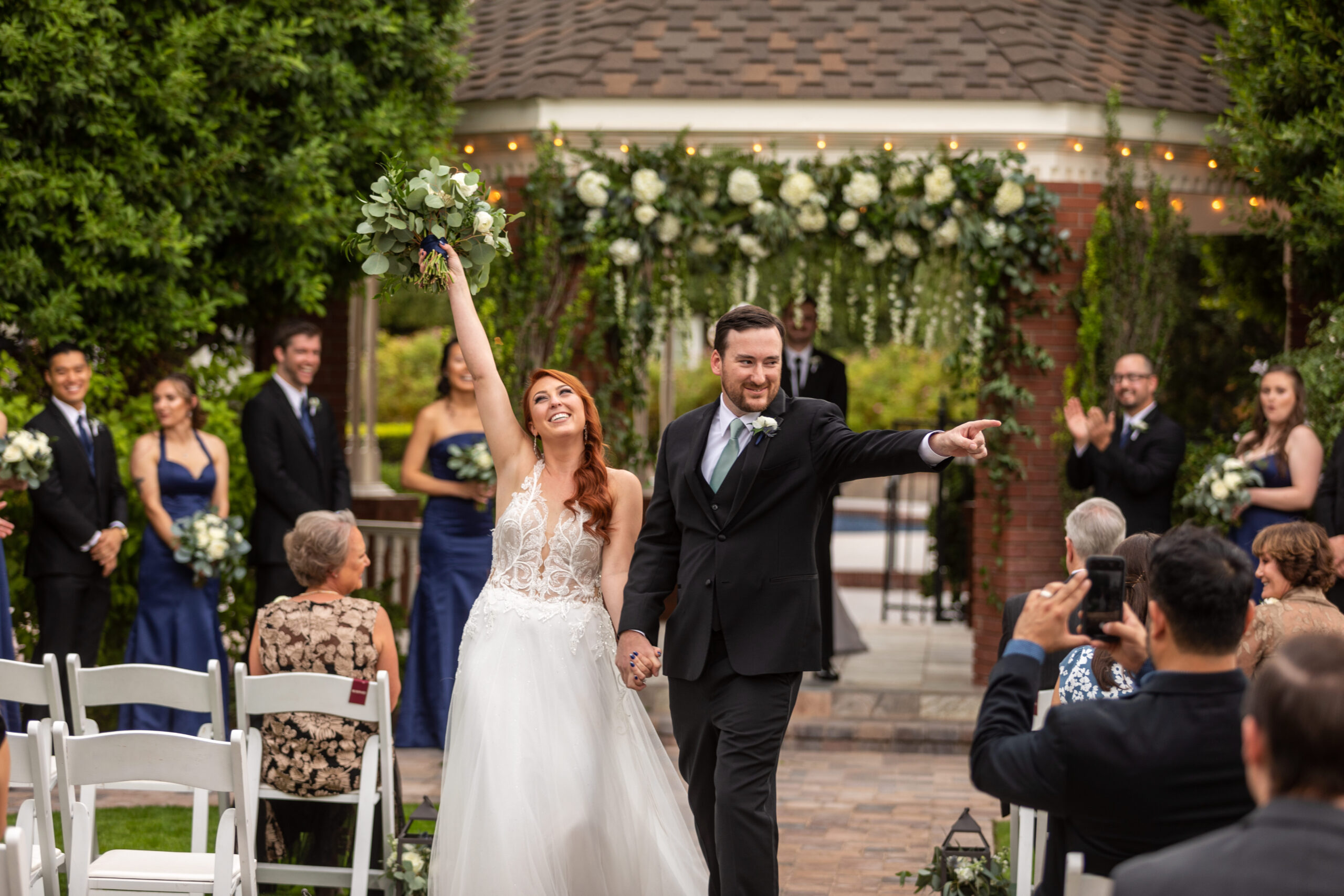
OPEN POST
Choosing the right venue is one of the most critical decisions you’ll make when planning your wedding. Your venue sets the tone for your entire celebration, from the ambiance to the overall experience. With so many options available, finding your dream wedding venue can feel overwhelming. In this guide, we’ll walk you through the process of discovering the perfect setting for your big day, ensuring it aligns with your vision, budget, and logistical needs.
- Define Your Vision:
Before you begin your search, take some time to envision your ideal wedding day. Consider factors such as the style, atmosphere, and theme you envision. Are you dreaming of a romantic garden wedding, a rustic barn celebration, or a glamorous ballroom affair? Clarifying your vision will help you narrow down your options and focus your search on venues that match your preferences. - Establish Your Budget:
Wedding venues can vary significantly in price, so it’s essential to establish a realistic budget early in the planning process. Determine how much you’re willing to spend on the venue, keeping in mind additional expenses such as catering, rentals, and decor. Be sure to factor in any extra costs, such as venue fees, service charges, and taxes, to avoid any budgetary surprises later on. - Consider Logistics:
When evaluating potential wedding venues, consider logistical factors such as location, capacity, and accessibility. Choose a location that is convenient for you and your guests, especially if you have out-of-town attendees. Make sure the venue can comfortably accommodate your guest list and offers ample parking or transportation options. Additionally, consider any special requirements you may have, such as wheelchair accessibility or accommodations for elderly guests. - Explore Different Venue Types:
Wedding venues come in all shapes and sizes, each offering its unique charm and amenities. Explore different venue types to find the one that best fits your vision and budget. Some popular options include:
- Outdoor Venues: Gardens, vineyards, beaches, and parks offer natural beauty and picturesque backdrops for your ceremony and reception.
- Indoor Venues: Banquet halls, hotels, and historic buildings provide elegant and climate-controlled settings for weddings year-round.
- Unique Venues: Consider non-traditional spaces such as museums, art galleries, or private estates for a one-of-a-kind wedding experience.
- Do Your Research:
Once you’ve narrowed down your options, it’s time to conduct thorough research on each potential venue. Visit their websites to view photos, read reviews, and learn more about their offerings. Reach out to the venue coordinators to request pricing information, availability, and to schedule site visits. During your visits, pay attention to the venue’s ambiance, layout, and overall condition to ensure it meets your expectations. - Ask the Right Questions:
When meeting with venue representatives, be prepared to ask specific questions to help you assess whether the venue is the right fit for your wedding. Some important questions to consider include:
- What is included in the venue rental fee?
- Do you have any preferred vendors or restrictions on outside vendors?
- What is the venue’s capacity and minimum guest requirement?
- Are there any noise restrictions or curfews we should be aware of?
- What is the backup plan for inclement weather for outdoor venues?
- Are there any additional fees or hidden costs we should know about?
- Consider Amenities and Services:
In addition to the physical space, consider the amenities and services offered by each venue. Some venues may provide in-house catering, event planning services, or rental items such as tables, chairs, and linens. Evaluate these offerings to determine if they align with your needs and preferences. Keep in mind that opting for all-inclusive packages can simplify the planning process and potentially save you money in the long run. - Trust Your Instincts:
Ultimately, trust your instincts when selecting your dream wedding venue. Choose a venue that resonates with you on a personal level and feels right for your special day. If something feels off or doesn’t meet your expectations, don’t hesitate to continue your search until you find the perfect fit. Your wedding venue should reflect your unique style and personality, creating memories that will last a lifetime.
Conclusion:
Your wedding venue sets the stage for one of the most important days of your life, so take the time to find the perfect setting that aligns with your vision and budget. By defining your vision, establishing your budget, considering logistics, exploring different venue types, conducting thorough research, asking the right questions, and trusting your instincts, you can discover your dream wedding venue and create the magical day you’ve always imagined. Happy planning!
February 13, 2024

OPEN POST
Choosing the right venue is one of the most critical decisions you’ll make when planning your wedding. Your venue sets the tone for your entire celebration, from the ambiance to the overall experience. With so many options available, finding your dream wedding venue can feel overwhelming. In this guide, we’ll walk you through the process of discovering the perfect setting for your big day, ensuring it aligns with your vision, budget, and logistical needs.
- Define Your Vision:
Before you begin your search, take some time to envision your ideal wedding day. Consider factors such as the style, atmosphere, and theme you envision. Are you dreaming of a romantic garden wedding, a rustic barn celebration, or a glamorous ballroom affair? Clarifying your vision will help you narrow down your options and focus your search on venues that match your preferences. - Establish Your Budget:
Wedding venues can vary significantly in price, so it’s essential to establish a realistic budget early in the planning process. Determine how much you’re willing to spend on the venue, keeping in mind additional expenses such as catering, rentals, and decor. Be sure to factor in any extra costs, such as venue fees, service charges, and taxes, to avoid any budgetary surprises later on. - Consider Logistics:
When evaluating potential wedding venues, consider logistical factors such as location, capacity, and accessibility. Choose a location that is convenient for you and your guests, especially if you have out-of-town attendees. Make sure the venue can comfortably accommodate your guest list and offers ample parking or transportation options. Additionally, consider any special requirements you may have, such as wheelchair accessibility or accommodations for elderly guests. - Explore Different Venue Types:
Wedding venues come in all shapes and sizes, each offering its unique charm and amenities. Explore different venue types to find the one that best fits your vision and budget. Some popular options include:
- Outdoor Venues: Gardens, vineyards, beaches, and parks offer natural beauty and picturesque backdrops for your ceremony and reception.
- Indoor Venues: Banquet halls, hotels, and historic buildings provide elegant and climate-controlled settings for weddings year-round.
- Unique Venues: Consider non-traditional spaces such as museums, art galleries, or private estates for a one-of-a-kind wedding experience.
- Do Your Research:
Once you’ve narrowed down your options, it’s time to conduct thorough research on each potential venue. Visit their websites to view photos, read reviews, and learn more about their offerings. Reach out to the venue coordinators to request pricing information, availability, and to schedule site visits. During your visits, pay attention to the venue’s ambiance, layout, and overall condition to ensure it meets your expectations. - Ask the Right Questions:
When meeting with venue representatives, be prepared to ask specific questions to help you assess whether the venue is the right fit for your wedding. Some important questions to consider include:
- What is included in the venue rental fee?
- Do you have any preferred vendors or restrictions on outside vendors?
- What is the venue’s capacity and minimum guest requirement?
- Are there any noise restrictions or curfews we should be aware of?
- What is the backup plan for inclement weather for outdoor venues?
- Are there any additional fees or hidden costs we should know about?
- Consider Amenities and Services:
In addition to the physical space, consider the amenities and services offered by each venue. Some venues may provide in-house catering, event planning services, or rental items such as tables, chairs, and linens. Evaluate these offerings to determine if they align with your needs and preferences. Keep in mind that opting for all-inclusive packages can simplify the planning process and potentially save you money in the long run. - Trust Your Instincts:
Ultimately, trust your instincts when selecting your dream wedding venue. Choose a venue that resonates with you on a personal level and feels right for your special day. If something feels off or doesn’t meet your expectations, don’t hesitate to continue your search until you find the perfect fit. Your wedding venue should reflect your unique style and personality, creating memories that will last a lifetime.
Conclusion:
Your wedding venue sets the stage for one of the most important days of your life, so take the time to find the perfect setting that aligns with your vision and budget. By defining your vision, establishing your budget, considering logistics, exploring different venue types, conducting thorough research, asking the right questions, and trusting your instincts, you can discover your dream wedding venue and create the magical day you’ve always imagined. Happy planning!
February 13, 2024
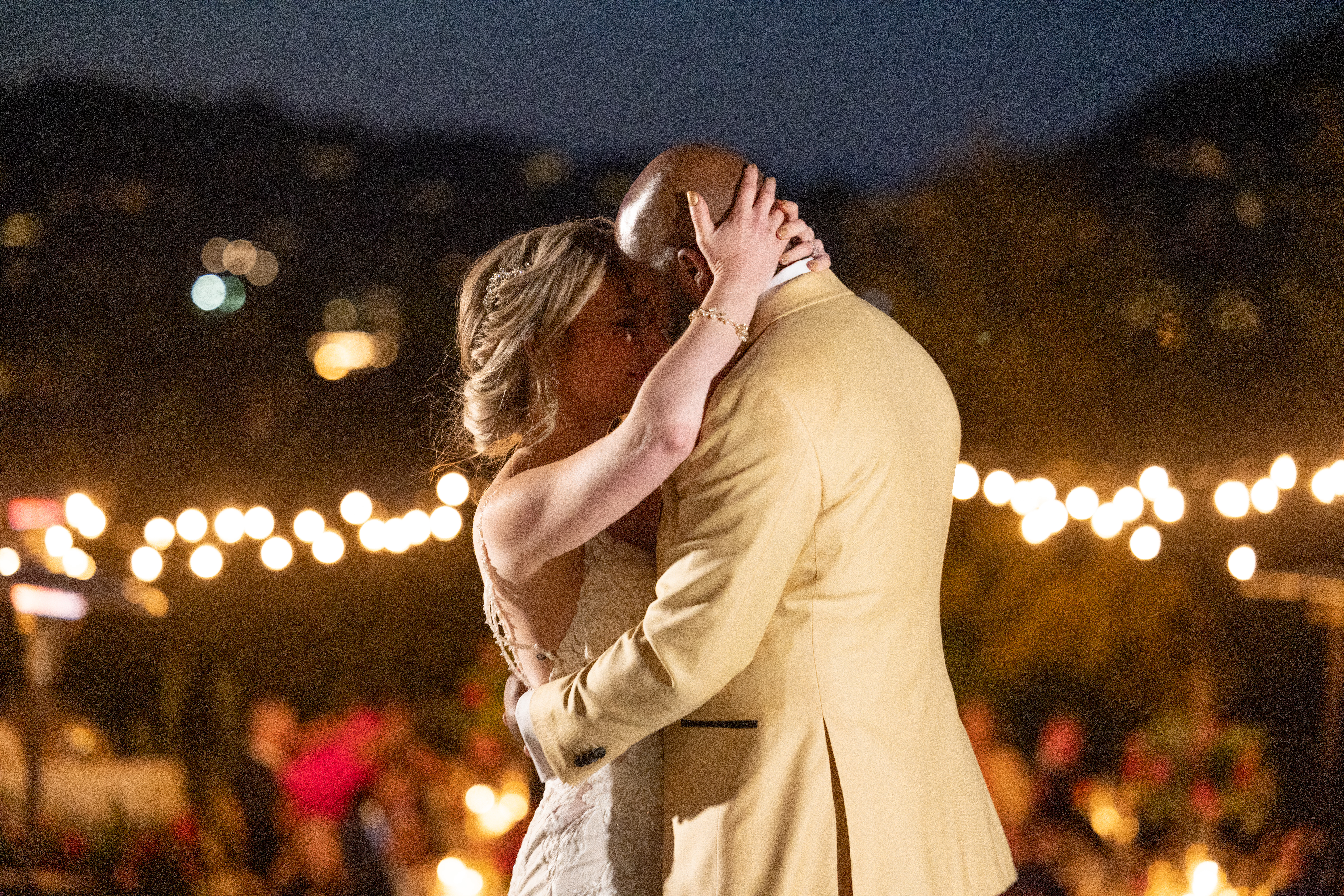
OPEN POST
A wedding videographer plays a crucial role in capturing the magical moments of every couple’s special day. The journey of a wedding videographer is filled with love, laughter, and memories that last a lifetime. In this blog post, we will explore the experiences and inspirations that drive these talented professionals to create beautiful and lasting memories for newlyweds across the globe.
Wedding videographers are dedicated to their craft, often motivated by their own love stories and a passion for storytelling. They develop unique perspectives and techniques that allow them to tell the love stories of their clients in a way that is authentic, heartfelt, and true to each couple’s individual personalities. As they grow in their careers, wedding videographers are always seeking out new and innovative ways to capture love on film, ensuring every bride and groom can look back on their big day with joy and nostalgia for years to come.
At the heart of every wedding videographer’s work is a deep appreciation for the tiniest details, breathtaking emotions, and once-in-a-lifetime celebrations that make every wedding truly unique. Through the lens of their camera, they give us a glimpse into the unforgettable moments of sincerity, joy, and love experienced by couples and their loved ones on the most important day of their lives. As we follow their journeys, we gain an insider’s perspective on the emotion, dedication, and artistry involved in capturing the essence of love through videography, and the impact they have on the lives of those who cherish their work for a lifetime.
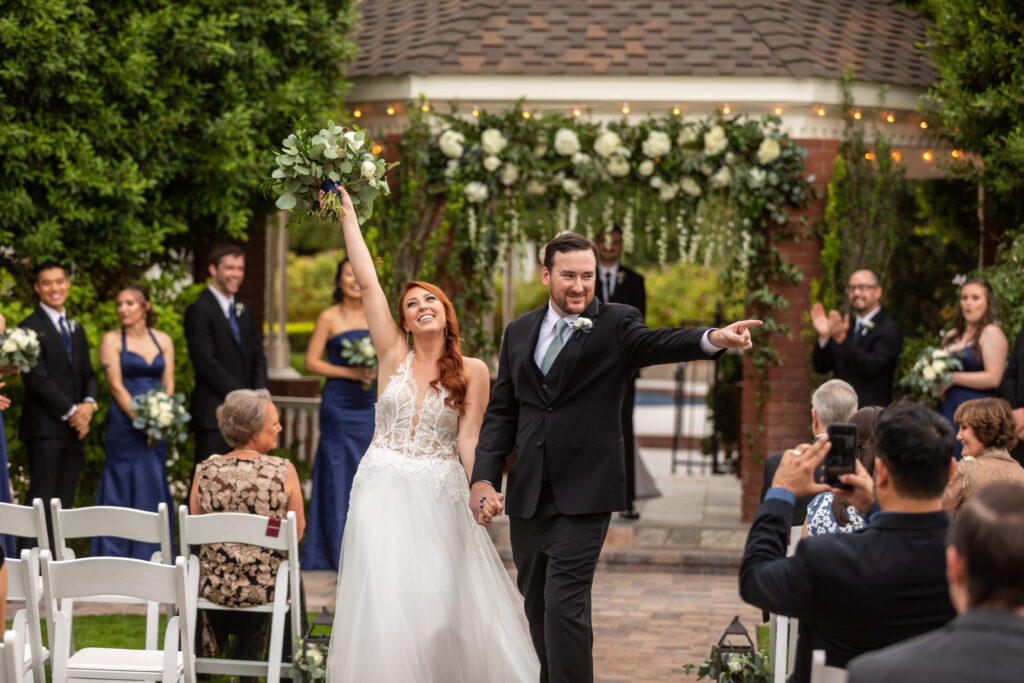
The Life of a Wedding Videographer: Capturing the Magic
Life as a wedding videographer is undoubtedly a rewarding one. To be able to capture the love between a couple on their special day is a privilege and an honor. But, it can also be a challenging and unpredictable path, full of long hours, late nights, and emotional highs and lows. As a wedding videographer, I have learned to adapt to these challenges, to find inspiration in every moment, and to seize every opportunity to create something truly unique and memorable.
Finding the Passion: Becoming a Wedding Videographer
The journey to becoming a wedding videographer began with a love for storytelling, a passion for creating visual art, and a desire to make a difference. Film and photography have always been a source of enjoyment and inspiration, but it wasn’t until I found the world of weddings that I realized how perfectly these two elements could come together.
Over time, I honed my skills, invested in the necessary equipment, and began offering my services as a professional wedding videographer. I worked hard to build a portfolio, develop a unique style, and create a brand that resonated with couples from all walks of life. Gaining trust and capturing the essence of a couple’s love story on film became my greatest goal – and one of my greatest joys.
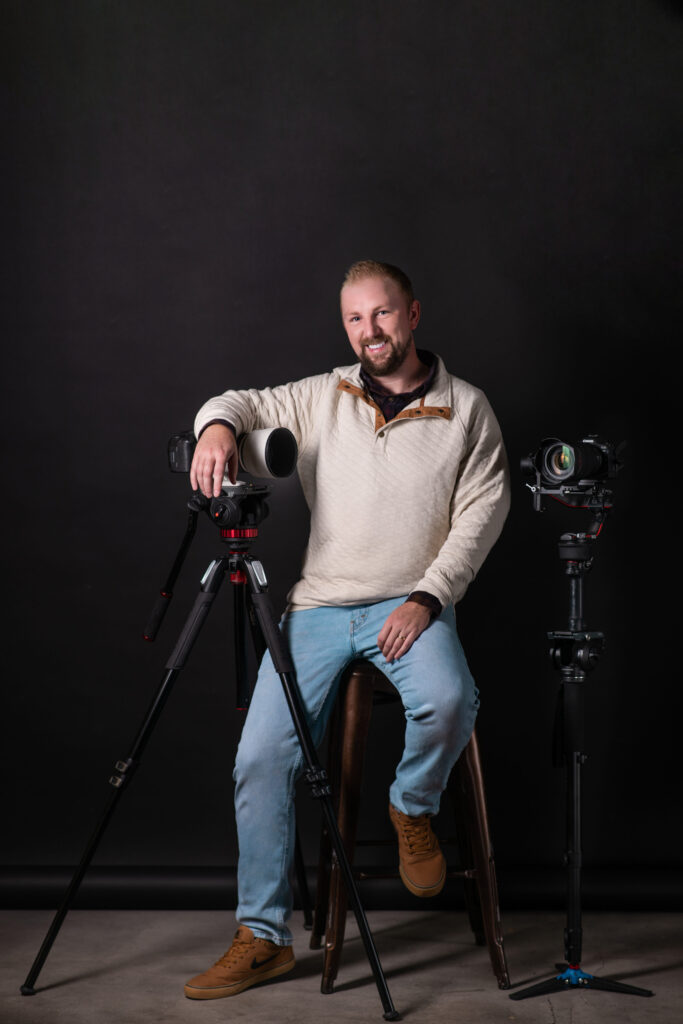
Navigating the Competitive Landscape
The world of wedding videography has evolved tremendously in recent years. As more and more talented individuals have joined the fray, competition has become fierce. It’s not enough to simply be a competent videographer – the rules have changed. Today, wedding videographers must also be master marketing strategists, social media experts, and skilled entrepreneurs to maintain a successful business.
To distinguish myself from others in the industry, I opted to specialize in a specific niche. I focused on crafting cinematic wedding films, using techniques and technologies typically reserved for Hollywood productions. This has allowed me to develop a dedicated following and expand my network, never failing to continue learning and perfecting my skills further.
Embracing Challenges: From Weather to Emotions
As a wedding videographer, there’s never a dull moment. Every wedding presents its own unique challenges – from difficult weather conditions to managing schedules, working with various personalities, and navigating emotional ups and downs.
Regardless of the challenges, it’s essential always to maintain a positive and professional attitude and to be flexible in adapting to new situations. For example, outdoor weddings can be subject to extreme shifts in weather, and ensuring a successful, visually stunning production may require some last-minute creativity. From incorporating rain-soaked shots to capturing golden hour light, a wedding videographer needs to be ready for anything.
Additionally, managing emotions – both those of the bride and groom and within ourselves – is essential. Wedding days are charged with high emotions, and as wedding videographers, we are entrusted with capturing those emotions while staying attuned to the needs and feelings of those around us.
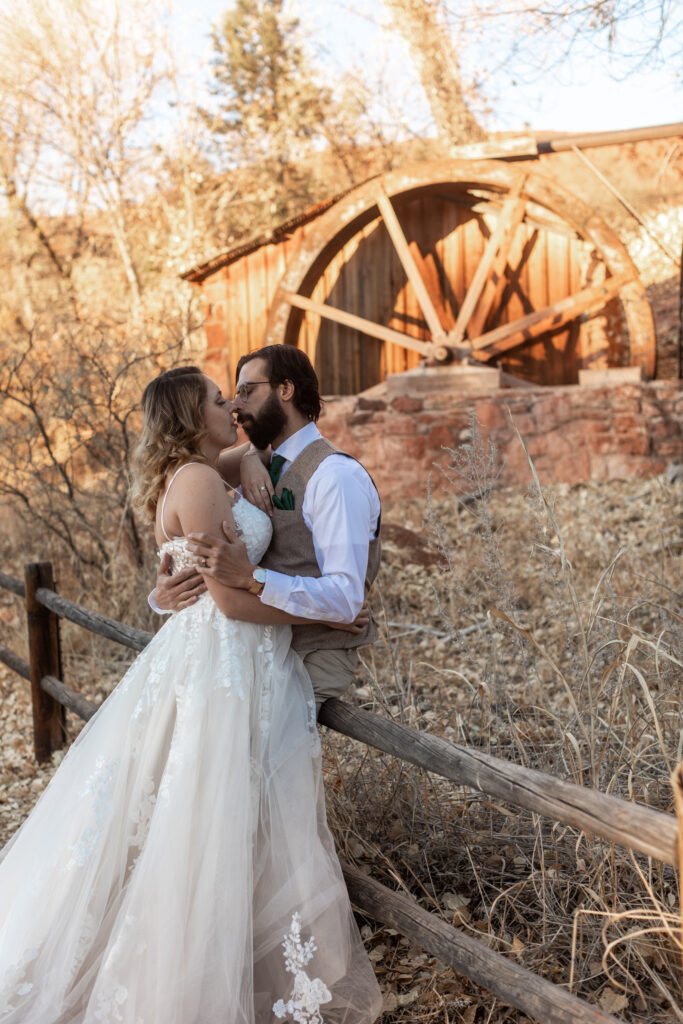
Collaborating with Clients: Building Connection and Trust
Building a strong connection with clients is a key part of being a wedding videographer. From initial consultations to final film delivery, I strive to listen to their ideas, understand their vision, and ensure they feel comfortable and cared for throughout the process. This often goes beyond simple communication and requires a genuine sense of empathy and understanding.
Building trust between myself and the couple is also essential. I need to know that I can rely on them for input, feedback, and trust in my vision for their wedding film. I always encourage open communication, gently guiding them along the way to ensure we’re on the same page and that they’re happy with the final result.
Staying Current: Keeping Up with Trends and Technology
Staying relevant and up-to-date with the latest trends and technologies in the world of wedding videography is a critical aspect of maintaining a successful business. From the newest camera gear and editing software to the latest social media platforms and digital marketing strategies, remaining on the cutting edge keeps my services in demand.
To maintain a successful career as a wedding videographer, continually seeking out new opportunities to learn and grow is required. Attending industry conferences, networking with fellow professionals, participating in online forums, and staying informed about the latest wedding videography techniques all contribute to staying relevant in this ever-evolving industry.

Creating Art: The Final Product
Ultimately, my role as a wedding videographer is to create a work of art that reflects the unique personalities, love story, and emotions of the couple I’m working with. The final product is something they’ll treasure for a lifetime and share with their friends and family for generations to come.
Each wedding video I create is uniquely tailored to the couple, weaving together the emotion, beauty, and joy of their big day into a visually stunning and deeply moving narrative. By incorporating cinematic elements such as drone footage, slow motion, and carefully crafted sound design, I aim to create a wedding film that exceeds expectations and stands apart from the rest.
In Conclusion: A Wedding Videographer’s Journey
As a wedding videographer, the journey of capturing love is an incredibly rewarding and fulfilling experience. Every couple’s story is unique, which brings both excitement and challenges to the work of a wedding videographer. The ultimate goal is to create a memorable, timeless, and emotionally-stirring wedding film that will be cherished for generations.
The role of a wedding videographer goes beyond just recording the day’s events. It involves forming connections with the couple, understanding their vision, and using their artistic talents to bring that vision to life. This journey often leads to personal and professional growth, resulting in both technical and emotional expertise that can enhance the final product and the overall experience of working with a wedding videographer.
In conclusion, the journey of a wedding videographer is one filled with joy, challenges, and growth – capturing people’s love at its finest. The significance of this work cannot be overstated, as it immortalizes the most precious moments of a couple’s life together. As a skilled and passionate wedding videographer, the dedication to this journey results in unforgettable wedding films that are not only visually stunning but emotionally impactful and woven with heartfelt storytelling.
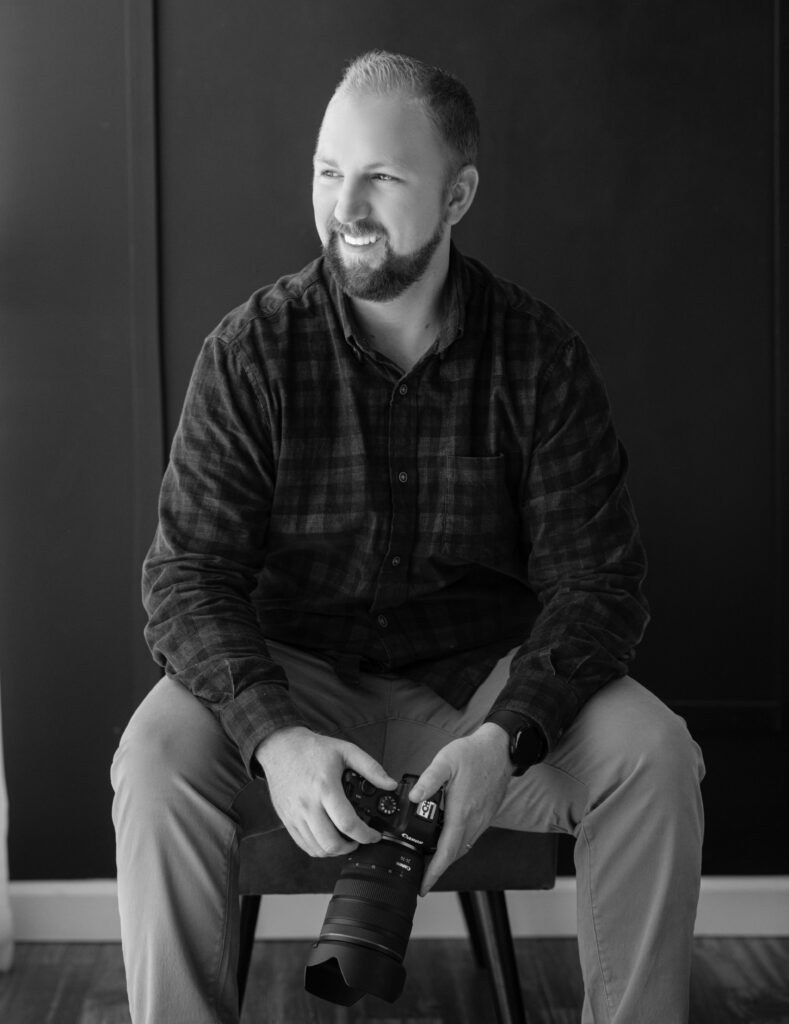
Key Takeaways
1. Discover the essential qualities that make a wedding videographer stand out, from creativity and storytelling to professionalism and adaptability during unexpected moments on the couple’s special day.
2. Explore the wedding videographer’s perspective on capturing the emotions and memories of love between the bride and groom, as well as the family and friends in attendance.
3. Understand the key steps and decision-making processes involved in a wedding videographer’s journey, from choosing the right equipment and planning the shots to editing the final product, crafting a memorable and authentic story for the couple.
4. Delve into the importance of building strong relationships between the wedding videographer and the couple, ensuring a seamless experience and a perfect final product that will be cherished for years to come.
5. Learn about the evolution of wedding videography and how the industry’s growth and technological advancements have impacted the way wedding videographers approach their craft, always pushing the boundaries of creativity and capturing the essence of love on film.
Frequently Asked Questions
1. **What should I look for when hiring a wedding videographer?**
When searching for the perfect wedding videographer, it’s essential to research their portfolio and style. You should also check for genuine testimonials and get referrals from friends or family. Communication and rapport are vital, as your wedding videographer will be an essential part of your special day.
2. **How far in advance should I book a wedding videographer?**
It’s recommended to book a wedding videographer as early as possible, usually at least 9-12 months before your wedding date. This gives you time to research available options, compare packages and prices, and ensure you have the best videographer for your big day.
3. **How much should I expect to spend on a wedding videographer?**
Wedding videographer pricing can vary greatly depending on location, experience, and services provided. An average cost for wedding videographers is generally around $2000-$3000, and will generally include a highlight film, wedding ceremony film, and a video of toasts. It’s best to have a rough budget in mind when searching and remember that quality is ultimately more important than price. Consider prioritizing in your wedding budget to include this essential part of your wedding memories.
4. **How long does it usually take to receive my finished wedding video?**
The turnaround time for your finalized wedding video can vary depending on your specific videographer and the editing process they use. On average, most couples receive their wedding video within 2-3 months of their wedding day. It’s essential to discuss expectations with your wedding videographer to have an accurate timeline.
5. **What is the difference between a wedding videographer and a wedding photographer?**
While both wedding videographers and photographers capture the essence of your wedding day, they do so in different formats. A wedding videographer records the events on video, focusing on motion and sound. In contrast, a photographer captures still images to encapsulate the day’s emotions. Many couples choose to hire both professionals to create a beautifully rounded memory of their special day.
6. **Will my wedding videographer also capture the audio during the ceremony and reception?**
Yes, a professional wedding videographer will capture both video and audio at your wedding. This includes the exchange of vows, speeches, and other special moments during your ceremony and reception. Be sure to discuss any specific audio preferences with your wedding videographer ahead of time.
7. **Can my wedding videographer create a highlight reel or a trailer of the wedding day?**
Most wedding videographers offer various packages, which can include a shorter highlight reel or trailer. This allows couples to share the essence of their wedding day with friends and family more conveniently. Be sure to ask your wedding videographer about the different editing options and packages they offer.
8. **What type of equipment will a wedding videographer use to capture my wedding day?**
Professional wedding videographers use a range of high-quality cameras, lenses, audio equipment, and editing software to provide the best results. They may use multiple cameras to capture different angles and employ tools like steadicams or gimbals to ensure smooth, cinematic footage. It’s essential to hire an experienced wedding videographer who knows how to effectively use their equipment to capture your wedding day authentically.
9. **Should I provide a shot list or specific requests to my wedding videographer?**
It’s helpful to share your vision and any essential events you want to capture with your wedding videographer. However, remember that they are professionals with experience in covering weddings. Trust their judgment and creative eye, while also communicating any specific requests or needs that you may have.
10. **What is the benefit of having a wedding videographer at my wedding?**
Having a wedding videographer is an invaluable investment for your special day. Not only do they capture all your cherished memories, but they also create a film that tells the story of your love. A wedding video allows you to relive your wedding day anytime you want and share those memories with future generations. The wedding videographer’s expertise ensures you will cherish your wedding memories captured in a high-quality, cinematic format.
June 26, 2023

OPEN POST
A wedding videographer plays a crucial role in capturing the magical moments of every couple’s special day. The journey of a wedding videographer is filled with love, laughter, and memories that last a lifetime. In this blog post, we will explore the experiences and inspirations that drive these talented professionals to create beautiful and lasting memories for newlyweds across the globe.
Wedding videographers are dedicated to their craft, often motivated by their own love stories and a passion for storytelling. They develop unique perspectives and techniques that allow them to tell the love stories of their clients in a way that is authentic, heartfelt, and true to each couple’s individual personalities. As they grow in their careers, wedding videographers are always seeking out new and innovative ways to capture love on film, ensuring every bride and groom can look back on their big day with joy and nostalgia for years to come.
At the heart of every wedding videographer’s work is a deep appreciation for the tiniest details, breathtaking emotions, and once-in-a-lifetime celebrations that make every wedding truly unique. Through the lens of their camera, they give us a glimpse into the unforgettable moments of sincerity, joy, and love experienced by couples and their loved ones on the most important day of their lives. As we follow their journeys, we gain an insider’s perspective on the emotion, dedication, and artistry involved in capturing the essence of love through videography, and the impact they have on the lives of those who cherish their work for a lifetime.

The Life of a Wedding Videographer: Capturing the Magic
Life as a wedding videographer is undoubtedly a rewarding one. To be able to capture the love between a couple on their special day is a privilege and an honor. But, it can also be a challenging and unpredictable path, full of long hours, late nights, and emotional highs and lows. As a wedding videographer, I have learned to adapt to these challenges, to find inspiration in every moment, and to seize every opportunity to create something truly unique and memorable.
Finding the Passion: Becoming a Wedding Videographer
The journey to becoming a wedding videographer began with a love for storytelling, a passion for creating visual art, and a desire to make a difference. Film and photography have always been a source of enjoyment and inspiration, but it wasn’t until I found the world of weddings that I realized how perfectly these two elements could come together.
Over time, I honed my skills, invested in the necessary equipment, and began offering my services as a professional wedding videographer. I worked hard to build a portfolio, develop a unique style, and create a brand that resonated with couples from all walks of life. Gaining trust and capturing the essence of a couple’s love story on film became my greatest goal – and one of my greatest joys.

Navigating the Competitive Landscape
The world of wedding videography has evolved tremendously in recent years. As more and more talented individuals have joined the fray, competition has become fierce. It’s not enough to simply be a competent videographer – the rules have changed. Today, wedding videographers must also be master marketing strategists, social media experts, and skilled entrepreneurs to maintain a successful business.
To distinguish myself from others in the industry, I opted to specialize in a specific niche. I focused on crafting cinematic wedding films, using techniques and technologies typically reserved for Hollywood productions. This has allowed me to develop a dedicated following and expand my network, never failing to continue learning and perfecting my skills further.
Embracing Challenges: From Weather to Emotions
As a wedding videographer, there’s never a dull moment. Every wedding presents its own unique challenges – from difficult weather conditions to managing schedules, working with various personalities, and navigating emotional ups and downs.
Regardless of the challenges, it’s essential always to maintain a positive and professional attitude and to be flexible in adapting to new situations. For example, outdoor weddings can be subject to extreme shifts in weather, and ensuring a successful, visually stunning production may require some last-minute creativity. From incorporating rain-soaked shots to capturing golden hour light, a wedding videographer needs to be ready for anything.
Additionally, managing emotions – both those of the bride and groom and within ourselves – is essential. Wedding days are charged with high emotions, and as wedding videographers, we are entrusted with capturing those emotions while staying attuned to the needs and feelings of those around us.

Collaborating with Clients: Building Connection and Trust
Building a strong connection with clients is a key part of being a wedding videographer. From initial consultations to final film delivery, I strive to listen to their ideas, understand their vision, and ensure they feel comfortable and cared for throughout the process. This often goes beyond simple communication and requires a genuine sense of empathy and understanding.
Building trust between myself and the couple is also essential. I need to know that I can rely on them for input, feedback, and trust in my vision for their wedding film. I always encourage open communication, gently guiding them along the way to ensure we’re on the same page and that they’re happy with the final result.
Staying Current: Keeping Up with Trends and Technology
Staying relevant and up-to-date with the latest trends and technologies in the world of wedding videography is a critical aspect of maintaining a successful business. From the newest camera gear and editing software to the latest social media platforms and digital marketing strategies, remaining on the cutting edge keeps my services in demand.
To maintain a successful career as a wedding videographer, continually seeking out new opportunities to learn and grow is required. Attending industry conferences, networking with fellow professionals, participating in online forums, and staying informed about the latest wedding videography techniques all contribute to staying relevant in this ever-evolving industry.

Creating Art: The Final Product
Ultimately, my role as a wedding videographer is to create a work of art that reflects the unique personalities, love story, and emotions of the couple I’m working with. The final product is something they’ll treasure for a lifetime and share with their friends and family for generations to come.
Each wedding video I create is uniquely tailored to the couple, weaving together the emotion, beauty, and joy of their big day into a visually stunning and deeply moving narrative. By incorporating cinematic elements such as drone footage, slow motion, and carefully crafted sound design, I aim to create a wedding film that exceeds expectations and stands apart from the rest.
In Conclusion: A Wedding Videographer’s Journey
As a wedding videographer, the journey of capturing love is an incredibly rewarding and fulfilling experience. Every couple’s story is unique, which brings both excitement and challenges to the work of a wedding videographer. The ultimate goal is to create a memorable, timeless, and emotionally-stirring wedding film that will be cherished for generations.
The role of a wedding videographer goes beyond just recording the day’s events. It involves forming connections with the couple, understanding their vision, and using their artistic talents to bring that vision to life. This journey often leads to personal and professional growth, resulting in both technical and emotional expertise that can enhance the final product and the overall experience of working with a wedding videographer.
In conclusion, the journey of a wedding videographer is one filled with joy, challenges, and growth – capturing people’s love at its finest. The significance of this work cannot be overstated, as it immortalizes the most precious moments of a couple’s life together. As a skilled and passionate wedding videographer, the dedication to this journey results in unforgettable wedding films that are not only visually stunning but emotionally impactful and woven with heartfelt storytelling.

Key Takeaways
1. Discover the essential qualities that make a wedding videographer stand out, from creativity and storytelling to professionalism and adaptability during unexpected moments on the couple’s special day.
2. Explore the wedding videographer’s perspective on capturing the emotions and memories of love between the bride and groom, as well as the family and friends in attendance.
3. Understand the key steps and decision-making processes involved in a wedding videographer’s journey, from choosing the right equipment and planning the shots to editing the final product, crafting a memorable and authentic story for the couple.
4. Delve into the importance of building strong relationships between the wedding videographer and the couple, ensuring a seamless experience and a perfect final product that will be cherished for years to come.
5. Learn about the evolution of wedding videography and how the industry’s growth and technological advancements have impacted the way wedding videographers approach their craft, always pushing the boundaries of creativity and capturing the essence of love on film.
Frequently Asked Questions
1. **What should I look for when hiring a wedding videographer?**
When searching for the perfect wedding videographer, it’s essential to research their portfolio and style. You should also check for genuine testimonials and get referrals from friends or family. Communication and rapport are vital, as your wedding videographer will be an essential part of your special day.
2. **How far in advance should I book a wedding videographer?**
It’s recommended to book a wedding videographer as early as possible, usually at least 9-12 months before your wedding date. This gives you time to research available options, compare packages and prices, and ensure you have the best videographer for your big day.
3. **How much should I expect to spend on a wedding videographer?**
Wedding videographer pricing can vary greatly depending on location, experience, and services provided. An average cost for wedding videographers is generally around $2000-$3000, and will generally include a highlight film, wedding ceremony film, and a video of toasts. It’s best to have a rough budget in mind when searching and remember that quality is ultimately more important than price. Consider prioritizing in your wedding budget to include this essential part of your wedding memories.
4. **How long does it usually take to receive my finished wedding video?**
The turnaround time for your finalized wedding video can vary depending on your specific videographer and the editing process they use. On average, most couples receive their wedding video within 2-3 months of their wedding day. It’s essential to discuss expectations with your wedding videographer to have an accurate timeline.
5. **What is the difference between a wedding videographer and a wedding photographer?**
While both wedding videographers and photographers capture the essence of your wedding day, they do so in different formats. A wedding videographer records the events on video, focusing on motion and sound. In contrast, a photographer captures still images to encapsulate the day’s emotions. Many couples choose to hire both professionals to create a beautifully rounded memory of their special day.
6. **Will my wedding videographer also capture the audio during the ceremony and reception?**
Yes, a professional wedding videographer will capture both video and audio at your wedding. This includes the exchange of vows, speeches, and other special moments during your ceremony and reception. Be sure to discuss any specific audio preferences with your wedding videographer ahead of time.
7. **Can my wedding videographer create a highlight reel or a trailer of the wedding day?**
Most wedding videographers offer various packages, which can include a shorter highlight reel or trailer. This allows couples to share the essence of their wedding day with friends and family more conveniently. Be sure to ask your wedding videographer about the different editing options and packages they offer.
8. **What type of equipment will a wedding videographer use to capture my wedding day?**
Professional wedding videographers use a range of high-quality cameras, lenses, audio equipment, and editing software to provide the best results. They may use multiple cameras to capture different angles and employ tools like steadicams or gimbals to ensure smooth, cinematic footage. It’s essential to hire an experienced wedding videographer who knows how to effectively use their equipment to capture your wedding day authentically.
9. **Should I provide a shot list or specific requests to my wedding videographer?**
It’s helpful to share your vision and any essential events you want to capture with your wedding videographer. However, remember that they are professionals with experience in covering weddings. Trust their judgment and creative eye, while also communicating any specific requests or needs that you may have.
10. **What is the benefit of having a wedding videographer at my wedding?**
Having a wedding videographer is an invaluable investment for your special day. Not only do they capture all your cherished memories, but they also create a film that tells the story of your love. A wedding video allows you to relive your wedding day anytime you want and share those memories with future generations. The wedding videographer’s expertise ensures you will cherish your wedding memories captured in a high-quality, cinematic format.
June 26, 2023
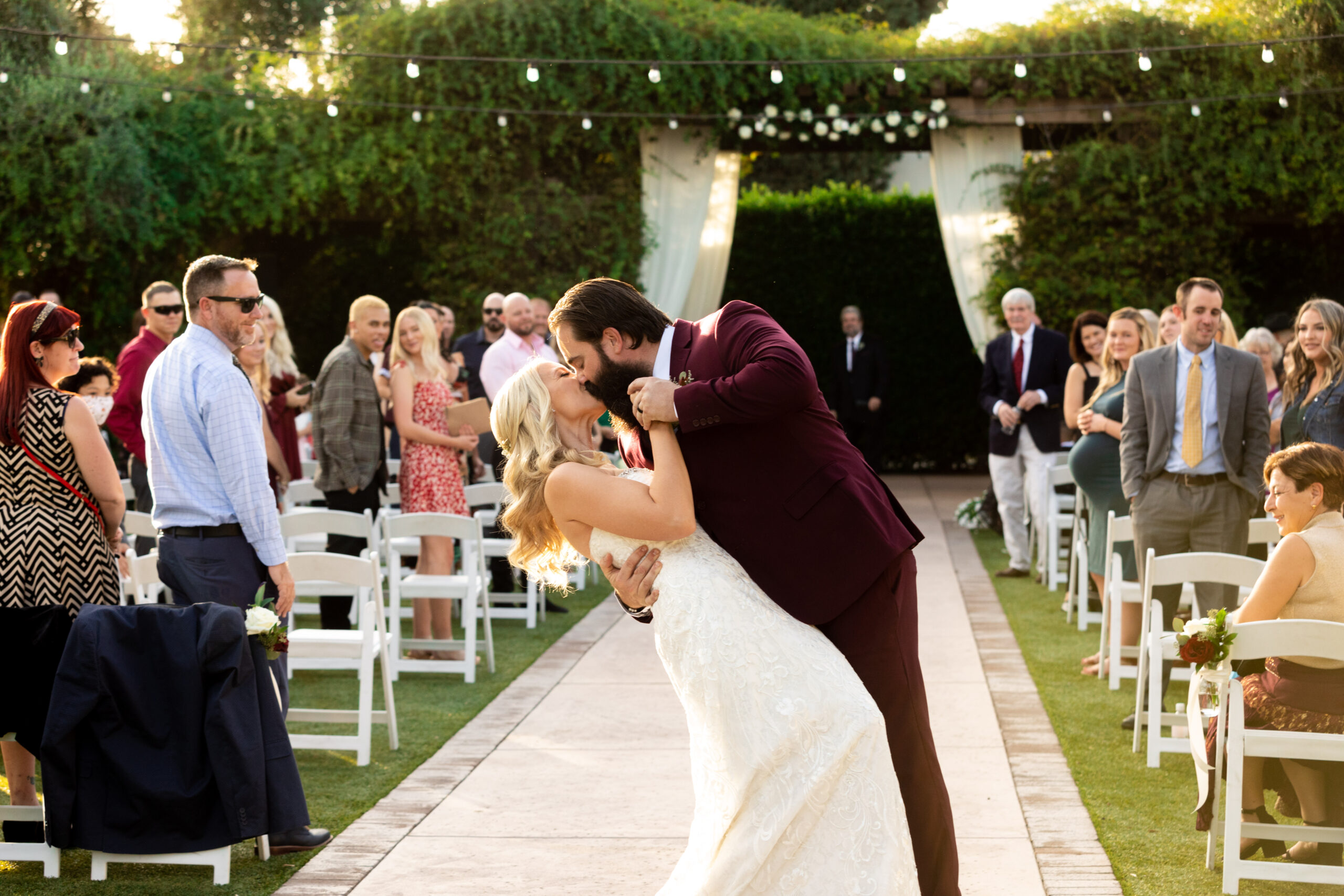
OPEN POST
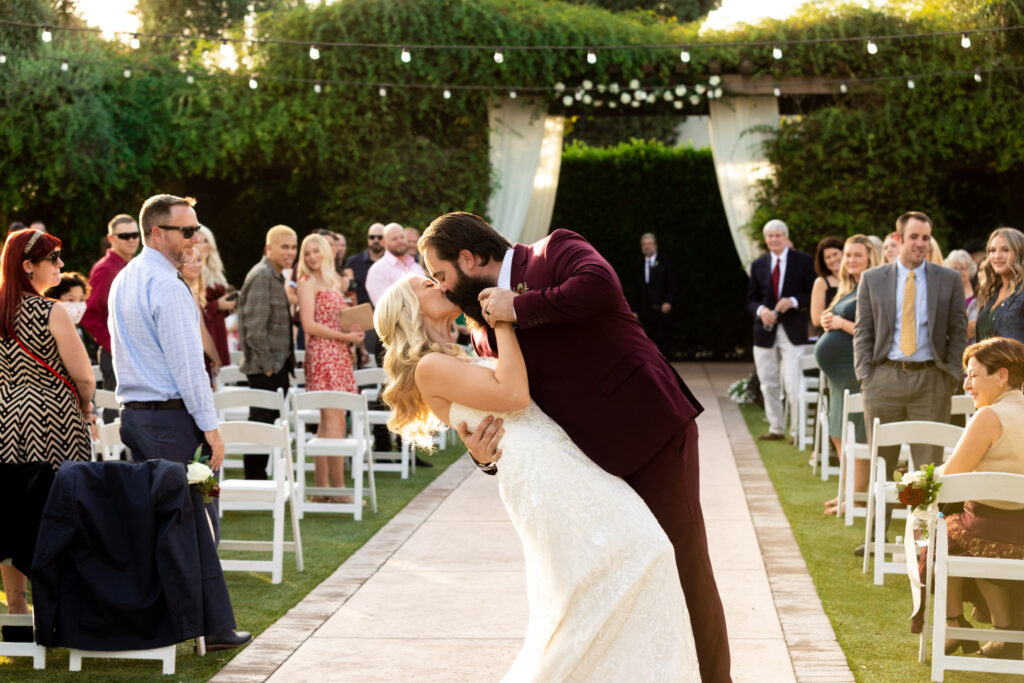
As a wedding videographer in Scottsdale, I have seen countless couples tie the knot in this beautiful city. With its breathtaking desert landscapes, luxury resorts, and perfect winter weather, Scottsdale is a popular destination for couples looking to say “I do.” I always recommend hiring a professional wedding videographer to capture the magical moments of your special day (of course I would, right?)! In this article, I will explain (and hopefully to convince you!) why hiring a Scottsdale wedding videographer is a must, and how to choose the right one for your wedding.
Importance of Capturing Wedding Moments
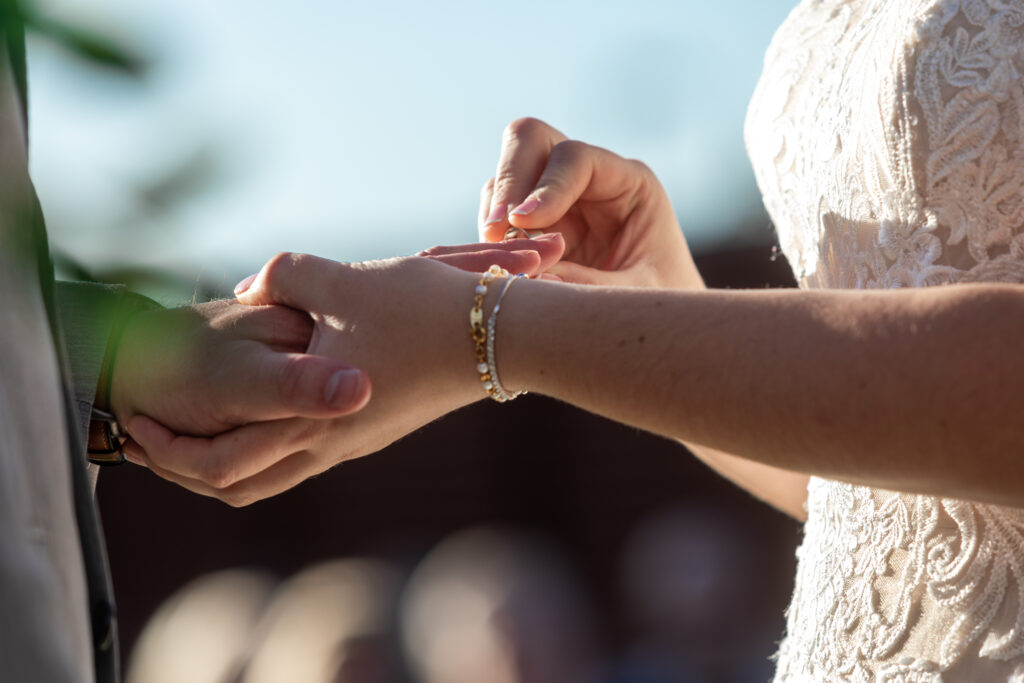
Your wedding day is one of the most important days of your life. It is a day filled with love, joy, and unforgettable memories. While photographs are a great way to capture these memories, a wedding video can bring your day to life in a way that photos cannot. A wedding video captures the emotions, sounds, and movements of your wedding day, allowing you to relive those special moments for years to come.
A wedding video also allows you to share your wedding day with loved ones who were unable to attend. Whether it’s a family member who lives across the country or a friend who couldn’t make it due to illness, a wedding video allows them to experience your special day as if they were there.
Benefits of Hiring a Scottsdale Wedding Videographer
Hiring a professional wedding videographer has many benefits. First and foremost, a professional videographer has the equipment and expertise needed to capture your wedding day in the best possible way. They know how to work with lighting, sound, and movement to create a beautiful and cinematic wedding video.
Another benefit of hiring a Scottsdale wedding videographer is their knowledge of the area. They know the best locations for filming, and can capture the natural beauty of Scottsdale in your wedding video. They also have experience working with other wedding vendors in the area, which can make the planning process smoother and more efficient.
What to Look for in a Wedding Videographer

When choosing a wedding videographer, there are a few key things to look for. First and foremost, you want a videographer who has experience filming weddings. Wedding videography is different from other types of videography, and requires a special skill set. Look for a videographer who has a portfolio of wedding videos that you love.
You also want a videographer who is easy to work with and who you feel comfortable around. Your videographer will be with you for most of your wedding day, so it’s important to choose someone who you get along with and who understands your vision for your wedding video.
Finally, look for a videographer who has the equipment needed to create a high-quality wedding video. This includes a high-definition camera, lighting equipment, and audio equipment. Ask to see samples of their work to ensure that the quality meets your expectations.
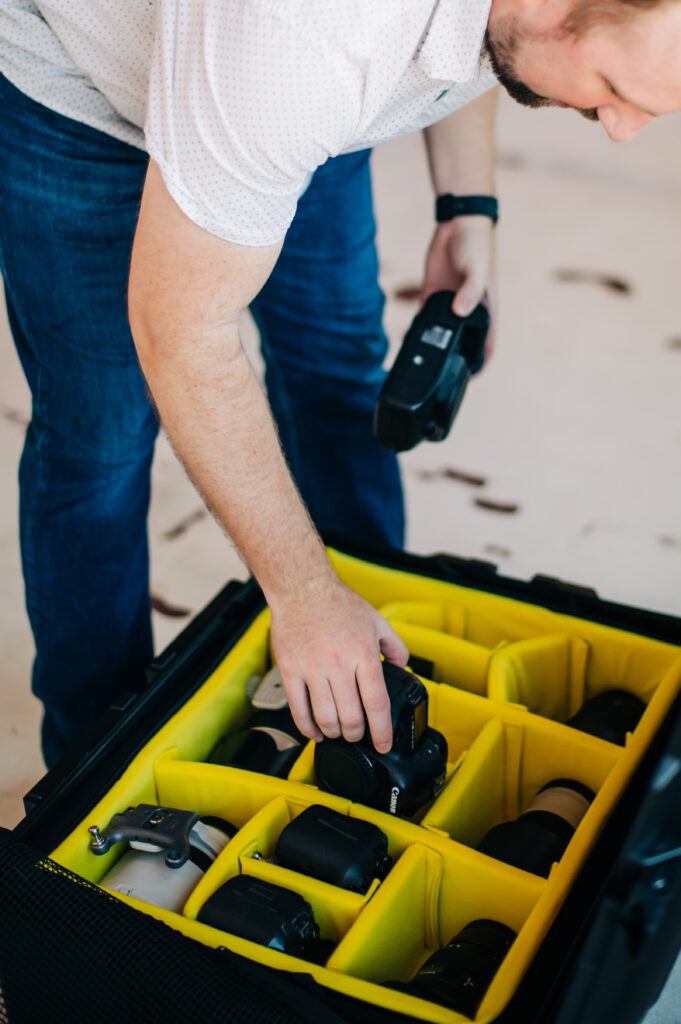
How to Choose the Right Scottsdale Wedding Videographer
Choosing the right Scottsdale wedding videographer takes time and research. Start by asking for recommendations from other wedding vendors or friends who have recently gotten married. You can also search online for wedding videographers in the Scottsdale area.
Once you have a list of potential videographers, visit their websites and social media pages to get a sense of their style and personality. Read reviews from past clients to see what they have to say about their experience working with the
videographer.
Finally, schedule consultations with your top choices. Meeting with a videographer in person allows you to get a sense of their personality and communication style, and to ask any questions you may have. It also allows the videographer to get to know you and your vision for your wedding video.
Capturing the Magic of Scottsdale Weddings

Scottsdale is a magical place to get married, and a Scottsdale wedding videographer can capture that magic in your wedding video. From the stunning desert landscapes to the luxurious resorts, Scottsdale offers a unique and beautiful backdrop for your wedding day.
A Scottsdale wedding videographer can also capture the cultural and historical significance of the area. Whether you are incorporating Native American culture into your wedding or celebrating the Western heritage of the area, a Scottsdale wedding videographer can capture those elements in your wedding video.
Examples of Scottsdale Wedding Videography
To get a sense of what a Scottsdale wedding videographer can do, take a look at some examples of their work. Many Scottsdale wedding videographers have sample videos on their websites or social media pages. Watch these videos to get a sense of their style and to see if it matches your vision for your wedding video.
You can also ask the videographer for references from past clients. Reach out to these clients to see what they thought of the videographer’s work and their experience working with them.
Cost of Hiring a Scottsdale Wedding Videographer
The cost of hiring a Scottsdale wedding videographer varies depending on a number of factors, including the videographer’s experience and the length and complexity of the wedding video. On average, you can expect to pay between $2,000 and $4,000 for a professional wedding video in Scottsdale.
While this may seem like a significant expense, it is important to remember that your wedding video is an investment in your memories. A professional wedding video allows you to relive your special day for years to come, and is a priceless memento of your love story.
Tips for Working with a Scottsdale Wedding Videographer

Once you have chosen a Scottsdale wedding videographer, there are a few things you can do to ensure a smooth and successful working relationship. First, communicate your vision for your wedding video clearly and early on. This will help the videographer understand your expectations and create a video that meets your needs.
You should also provide the videographer with a schedule of the wedding day, including any important moments or events that you want to be captured on video. This will ensure that the videographer is in the right place at the right time to capture those special moments.
Finally, be open to the videographer’s suggestions and ideas. A professional wedding videographer has experience creating beautiful and unique wedding videos, and may have ideas that you haven’t thought of.
Final Thoughts on Hiring a Scottsdale Wedding Videographer
A Scottsdale wedding videographer is an important investment in your memories of your special day. They have the equipment, expertise, and knowledge of the area needed to create a beautiful and cinematic wedding video that captures the magic of your wedding day.
When choosing a Scottsdale wedding videographer, take the time to do your research and choose someone who you feel comfortable with and who understands your vision for your wedding video. With the right videographer, you can relive your special day for years to come.
If you’re getting married in Scottsdale and are looking for a professional wedding videographer, contact us today. We would love to capture the magic of your special day and create a beautiful and timeless wedding video that you will treasure for years to come.
May 17, 2023

OPEN POST

As a wedding videographer in Scottsdale, I have seen countless couples tie the knot in this beautiful city. With its breathtaking desert landscapes, luxury resorts, and perfect winter weather, Scottsdale is a popular destination for couples looking to say “I do.” I always recommend hiring a professional wedding videographer to capture the magical moments of your special day (of course I would, right?)! In this article, I will explain (and hopefully to convince you!) why hiring a Scottsdale wedding videographer is a must, and how to choose the right one for your wedding.
Importance of Capturing Wedding Moments

Your wedding day is one of the most important days of your life. It is a day filled with love, joy, and unforgettable memories. While photographs are a great way to capture these memories, a wedding video can bring your day to life in a way that photos cannot. A wedding video captures the emotions, sounds, and movements of your wedding day, allowing you to relive those special moments for years to come.
A wedding video also allows you to share your wedding day with loved ones who were unable to attend. Whether it’s a family member who lives across the country or a friend who couldn’t make it due to illness, a wedding video allows them to experience your special day as if they were there.
Benefits of Hiring a Scottsdale Wedding Videographer
Hiring a professional wedding videographer has many benefits. First and foremost, a professional videographer has the equipment and expertise needed to capture your wedding day in the best possible way. They know how to work with lighting, sound, and movement to create a beautiful and cinematic wedding video.
Another benefit of hiring a Scottsdale wedding videographer is their knowledge of the area. They know the best locations for filming, and can capture the natural beauty of Scottsdale in your wedding video. They also have experience working with other wedding vendors in the area, which can make the planning process smoother and more efficient.
What to Look for in a Wedding Videographer

When choosing a wedding videographer, there are a few key things to look for. First and foremost, you want a videographer who has experience filming weddings. Wedding videography is different from other types of videography, and requires a special skill set. Look for a videographer who has a portfolio of wedding videos that you love.
You also want a videographer who is easy to work with and who you feel comfortable around. Your videographer will be with you for most of your wedding day, so it’s important to choose someone who you get along with and who understands your vision for your wedding video.
Finally, look for a videographer who has the equipment needed to create a high-quality wedding video. This includes a high-definition camera, lighting equipment, and audio equipment. Ask to see samples of their work to ensure that the quality meets your expectations.

How to Choose the Right Scottsdale Wedding Videographer
Choosing the right Scottsdale wedding videographer takes time and research. Start by asking for recommendations from other wedding vendors or friends who have recently gotten married. You can also search online for wedding videographers in the Scottsdale area.
Once you have a list of potential videographers, visit their websites and social media pages to get a sense of their style and personality. Read reviews from past clients to see what they have to say about their experience working with the
videographer.
Finally, schedule consultations with your top choices. Meeting with a videographer in person allows you to get a sense of their personality and communication style, and to ask any questions you may have. It also allows the videographer to get to know you and your vision for your wedding video.
Capturing the Magic of Scottsdale Weddings

Scottsdale is a magical place to get married, and a Scottsdale wedding videographer can capture that magic in your wedding video. From the stunning desert landscapes to the luxurious resorts, Scottsdale offers a unique and beautiful backdrop for your wedding day.
A Scottsdale wedding videographer can also capture the cultural and historical significance of the area. Whether you are incorporating Native American culture into your wedding or celebrating the Western heritage of the area, a Scottsdale wedding videographer can capture those elements in your wedding video.
Examples of Scottsdale Wedding Videography
To get a sense of what a Scottsdale wedding videographer can do, take a look at some examples of their work. Many Scottsdale wedding videographers have sample videos on their websites or social media pages. Watch these videos to get a sense of their style and to see if it matches your vision for your wedding video.
You can also ask the videographer for references from past clients. Reach out to these clients to see what they thought of the videographer’s work and their experience working with them.
Cost of Hiring a Scottsdale Wedding Videographer
The cost of hiring a Scottsdale wedding videographer varies depending on a number of factors, including the videographer’s experience and the length and complexity of the wedding video. On average, you can expect to pay between $2,000 and $4,000 for a professional wedding video in Scottsdale.
While this may seem like a significant expense, it is important to remember that your wedding video is an investment in your memories. A professional wedding video allows you to relive your special day for years to come, and is a priceless memento of your love story.
Tips for Working with a Scottsdale Wedding Videographer

Once you have chosen a Scottsdale wedding videographer, there are a few things you can do to ensure a smooth and successful working relationship. First, communicate your vision for your wedding video clearly and early on. This will help the videographer understand your expectations and create a video that meets your needs.
You should also provide the videographer with a schedule of the wedding day, including any important moments or events that you want to be captured on video. This will ensure that the videographer is in the right place at the right time to capture those special moments.
Finally, be open to the videographer’s suggestions and ideas. A professional wedding videographer has experience creating beautiful and unique wedding videos, and may have ideas that you haven’t thought of.
Final Thoughts on Hiring a Scottsdale Wedding Videographer
A Scottsdale wedding videographer is an important investment in your memories of your special day. They have the equipment, expertise, and knowledge of the area needed to create a beautiful and cinematic wedding video that captures the magic of your wedding day.
When choosing a Scottsdale wedding videographer, take the time to do your research and choose someone who you feel comfortable with and who understands your vision for your wedding video. With the right videographer, you can relive your special day for years to come.
If you’re getting married in Scottsdale and are looking for a professional wedding videographer, contact us today. We would love to capture the magic of your special day and create a beautiful and timeless wedding video that you will treasure for years to come.